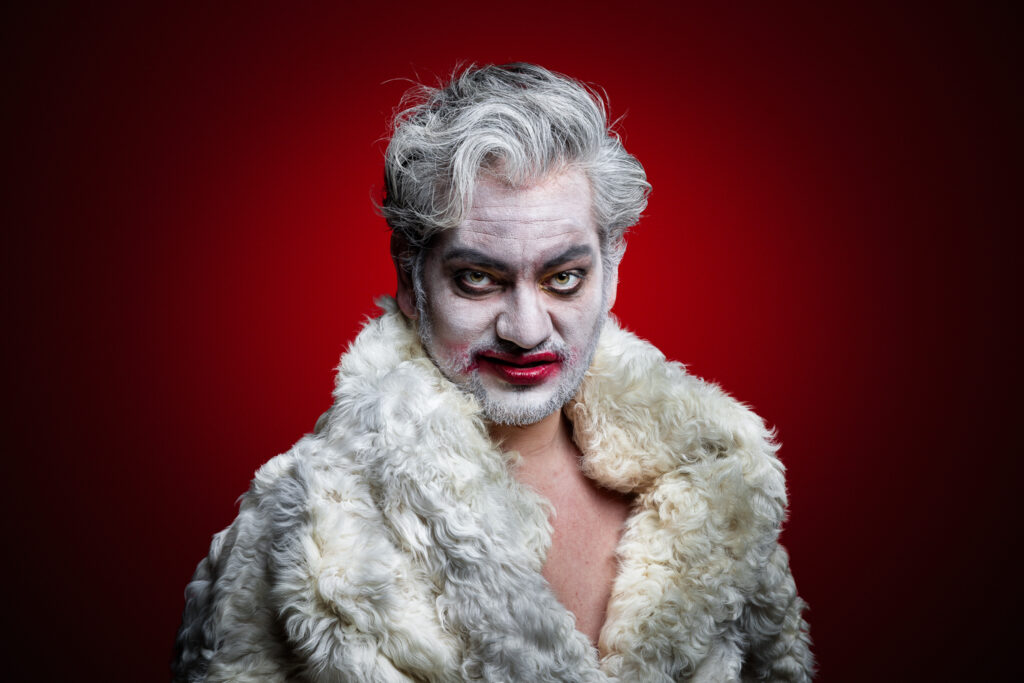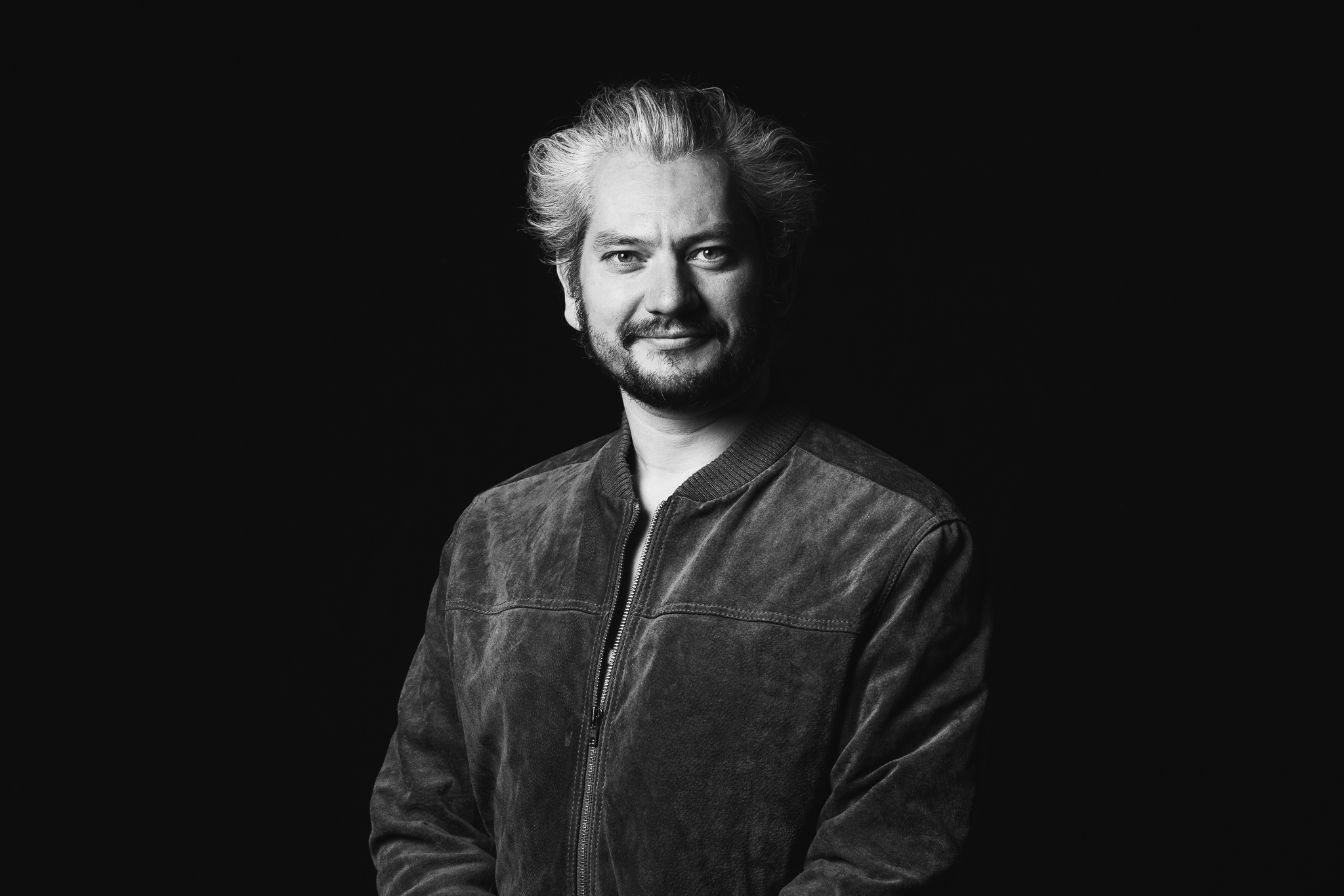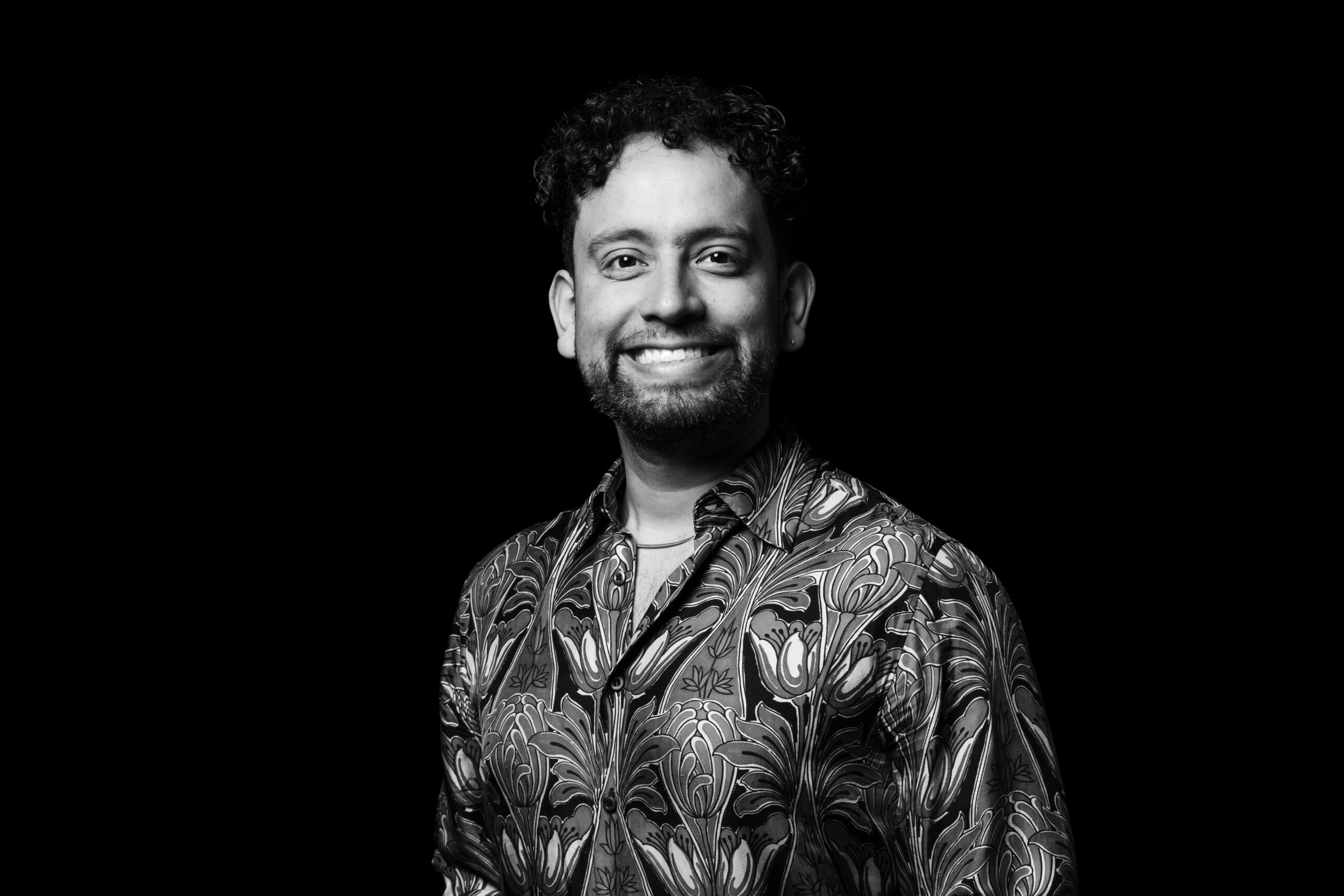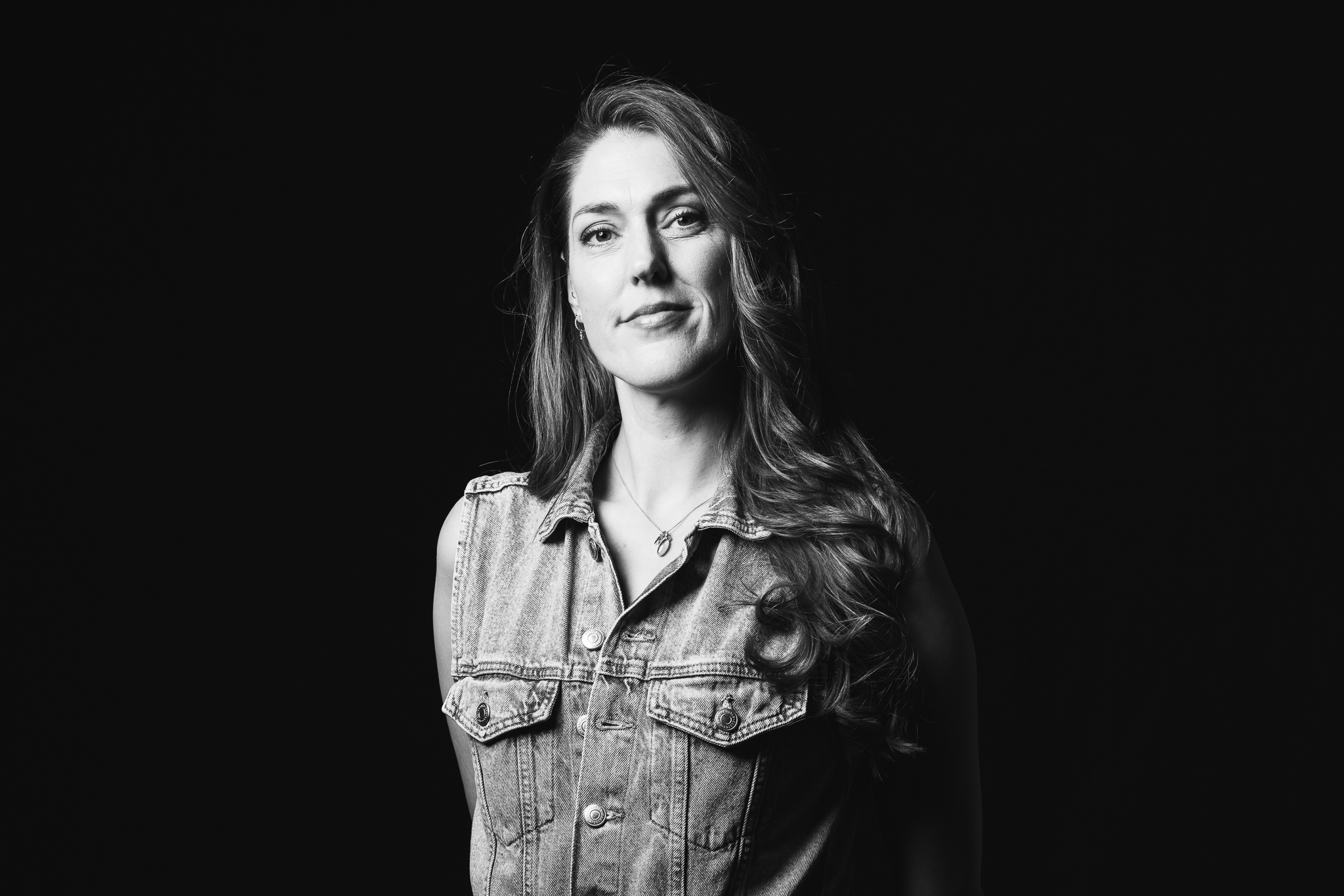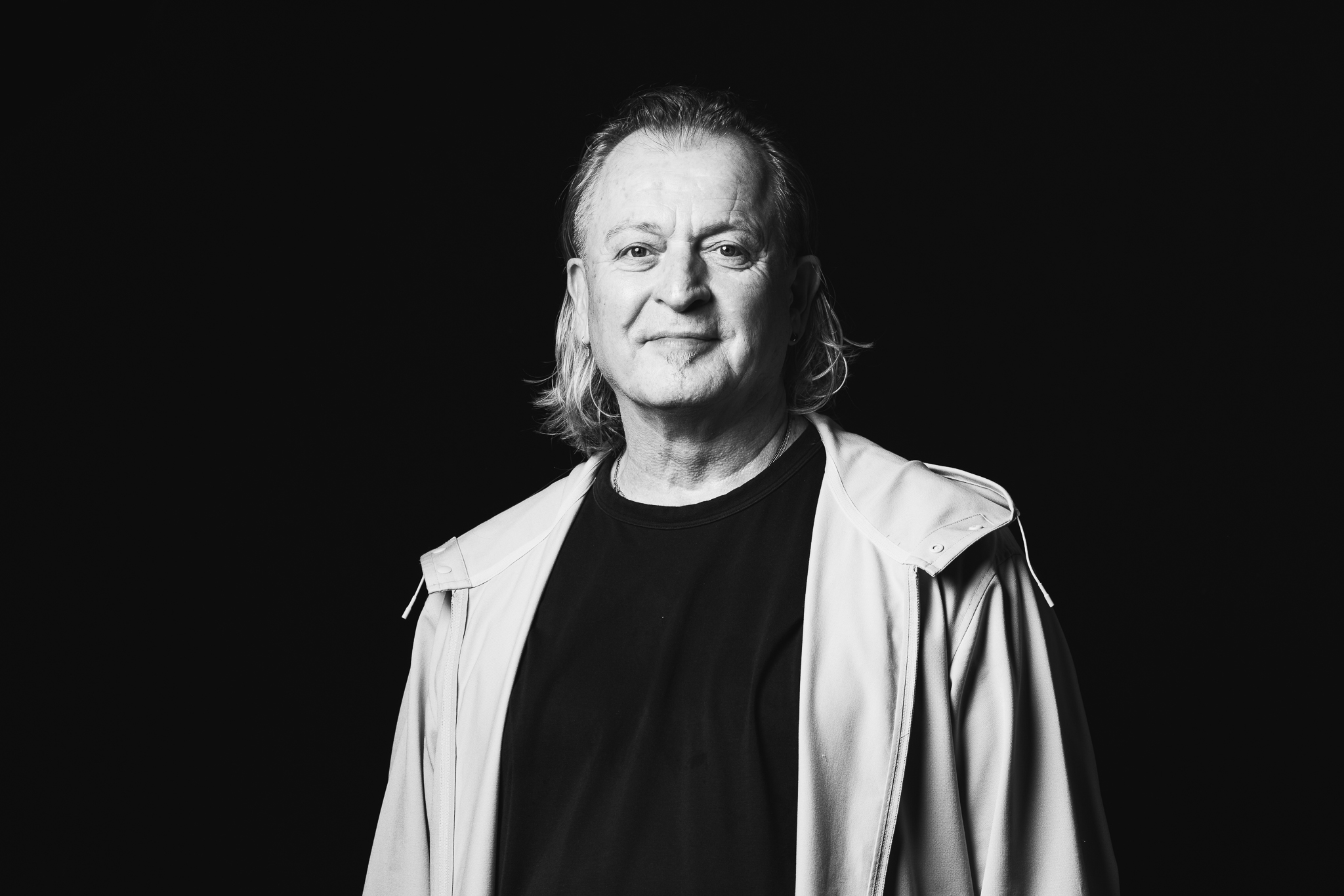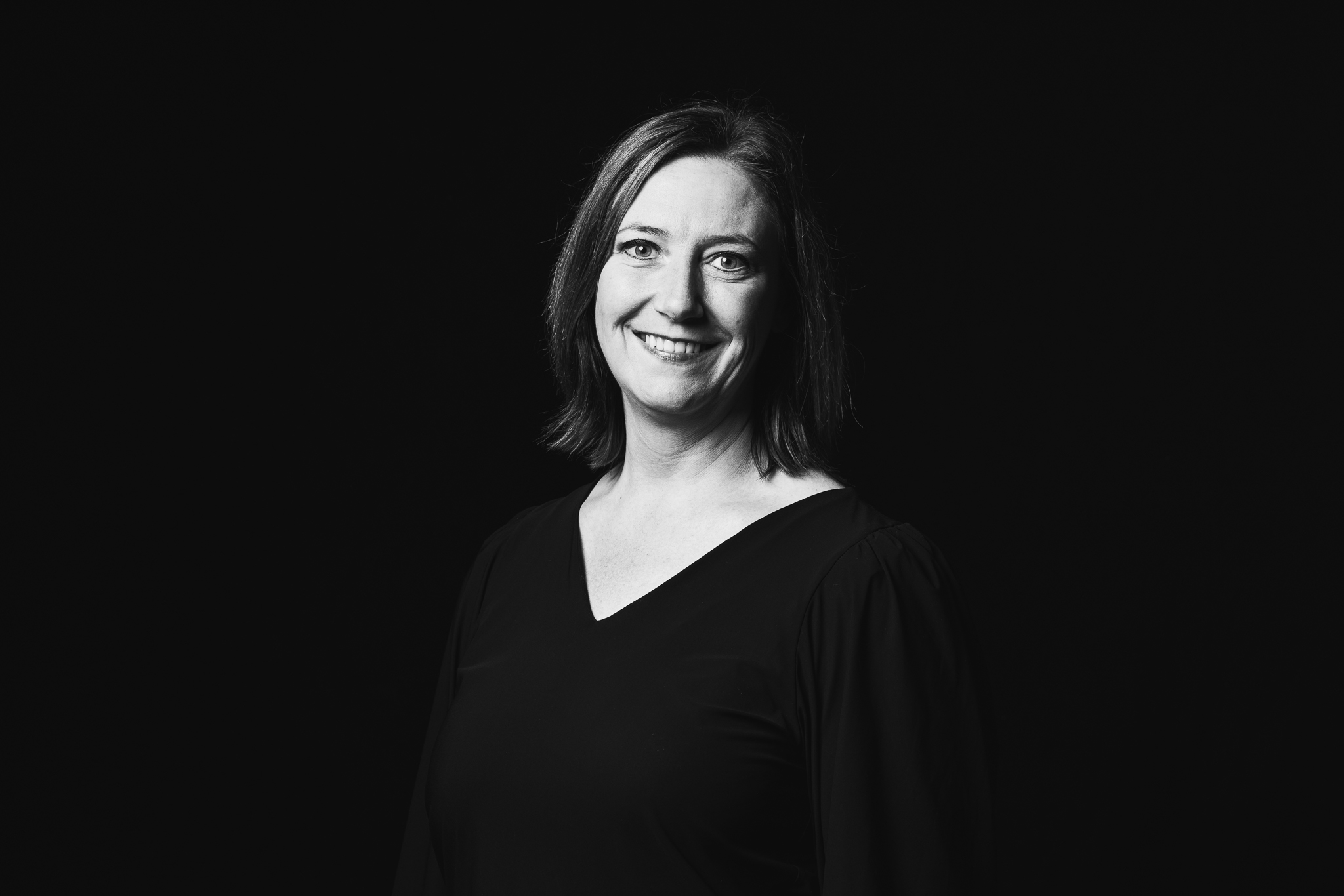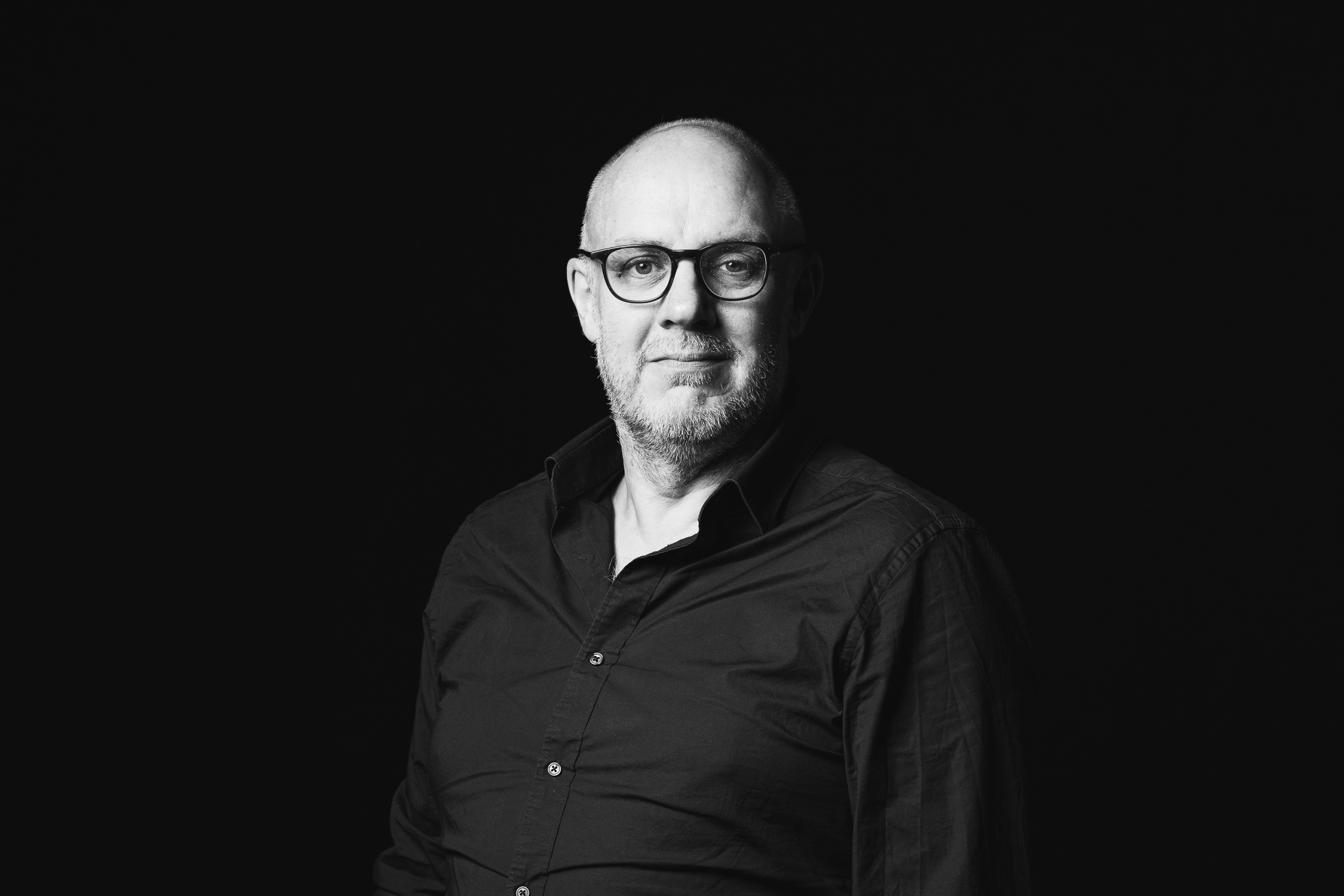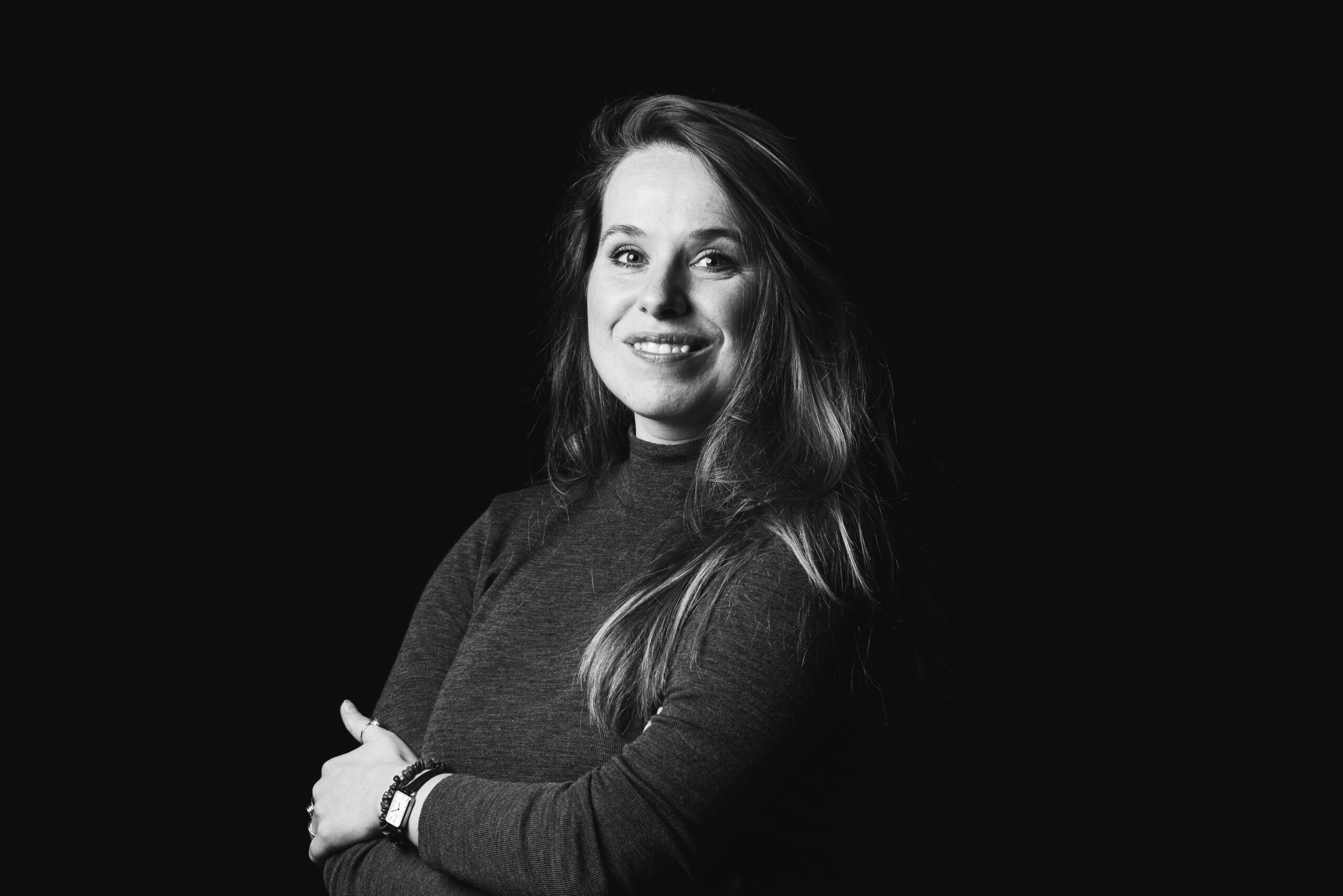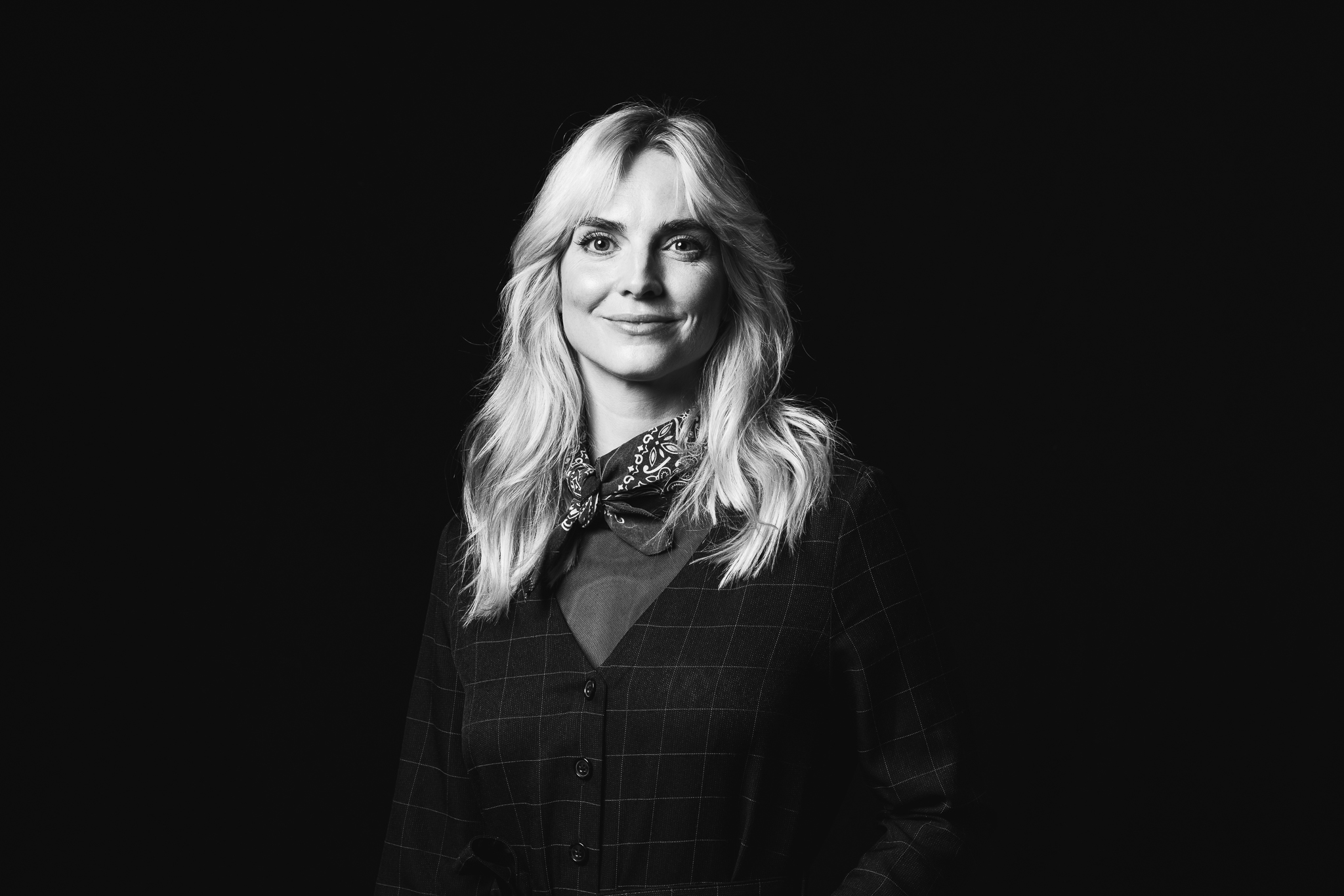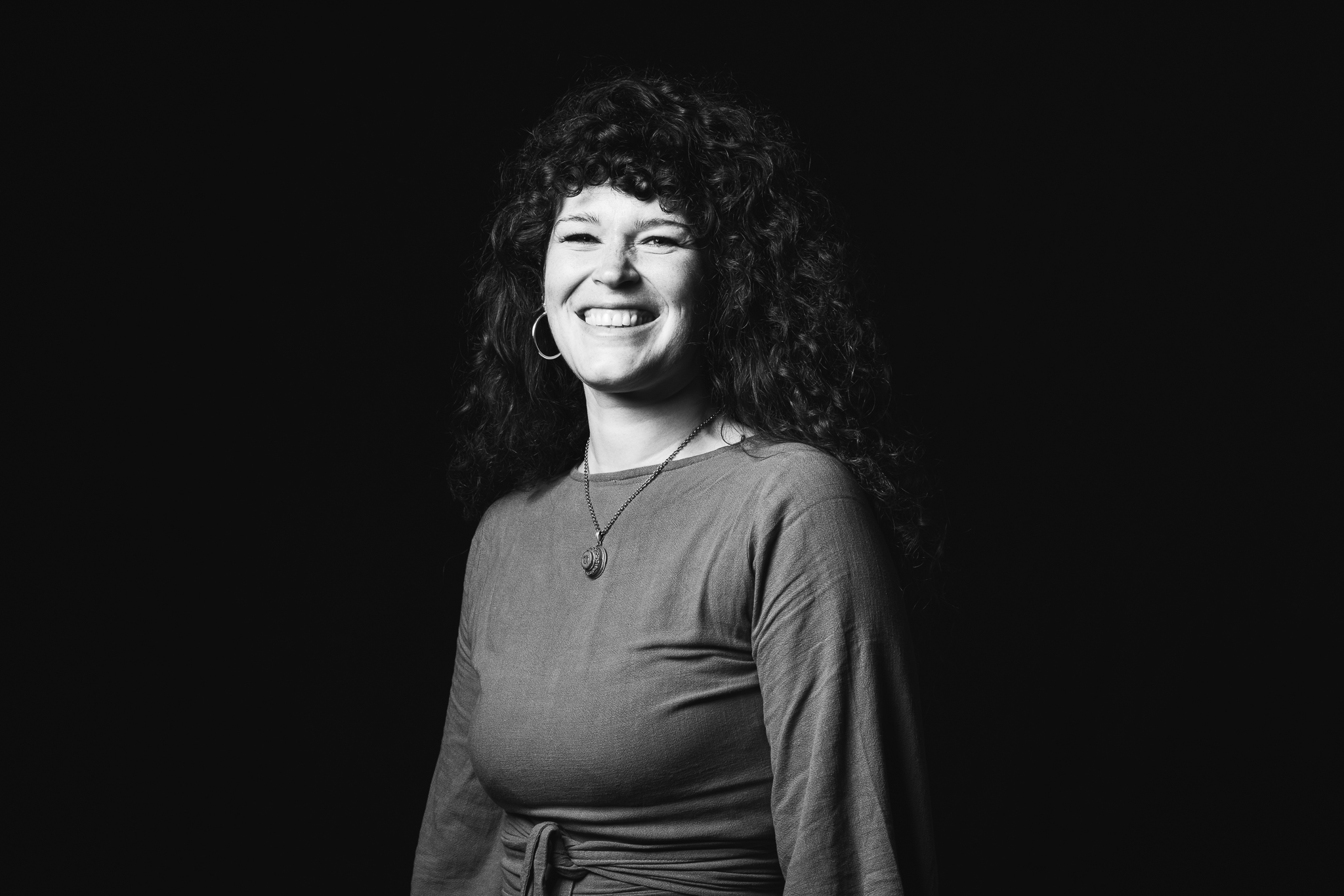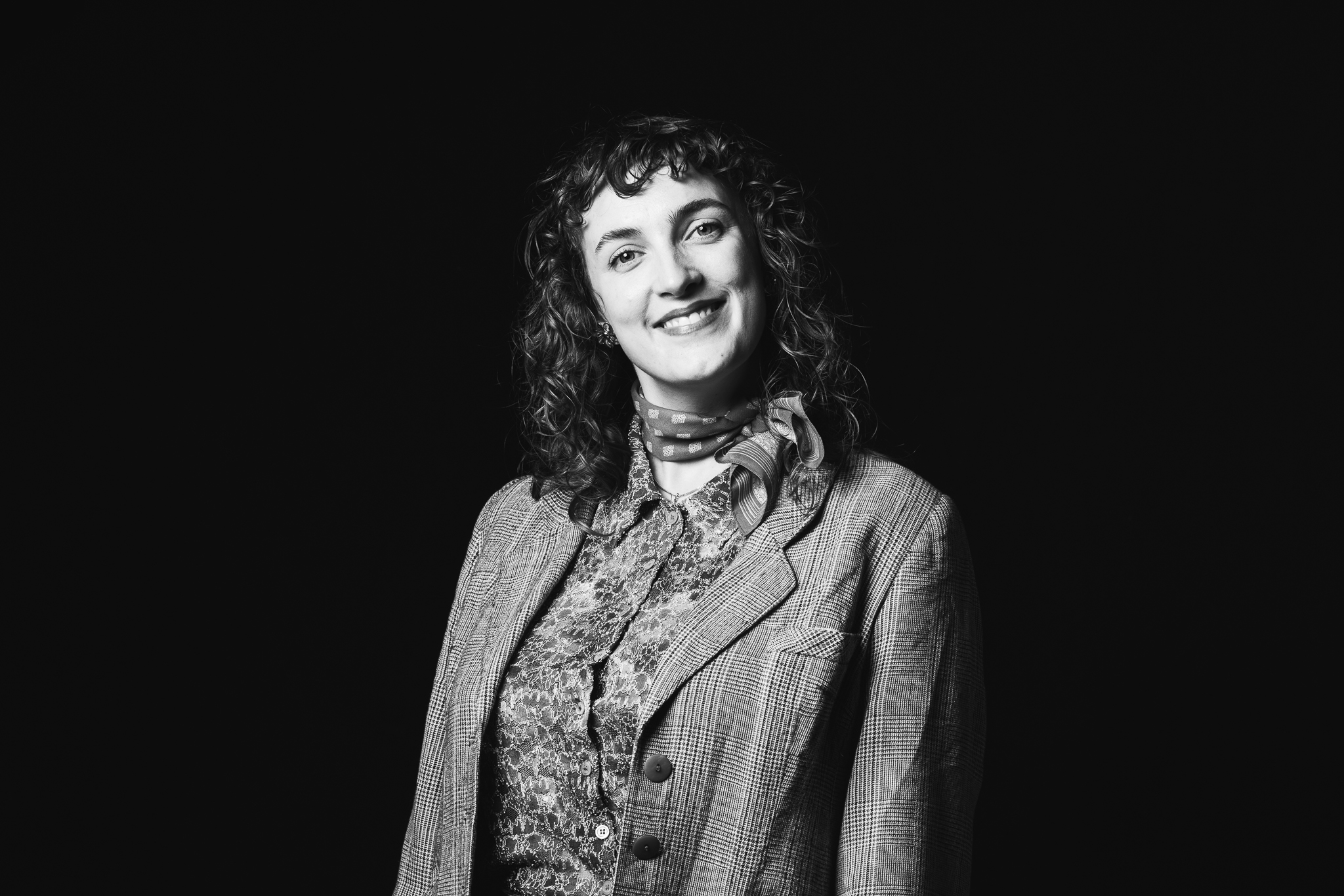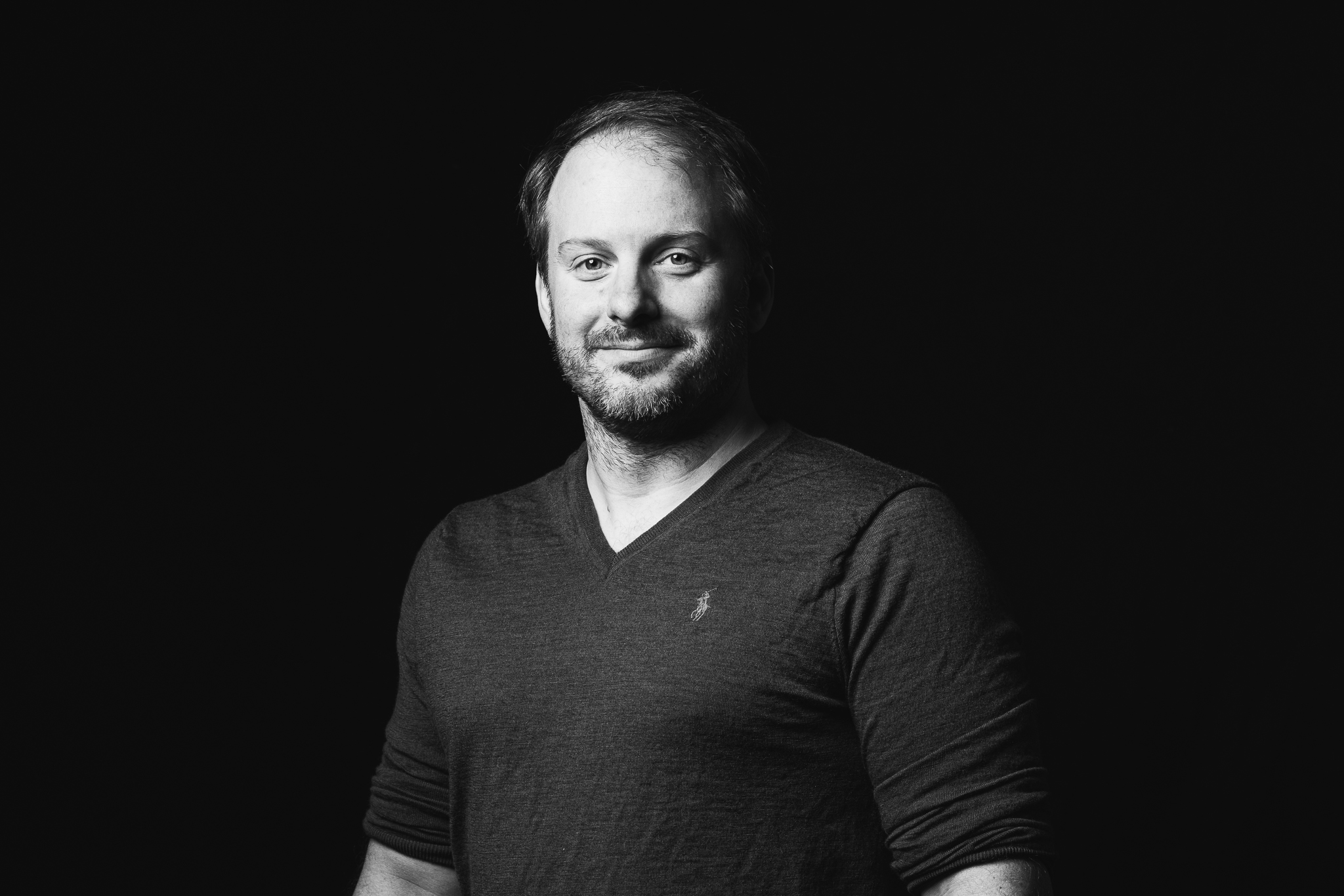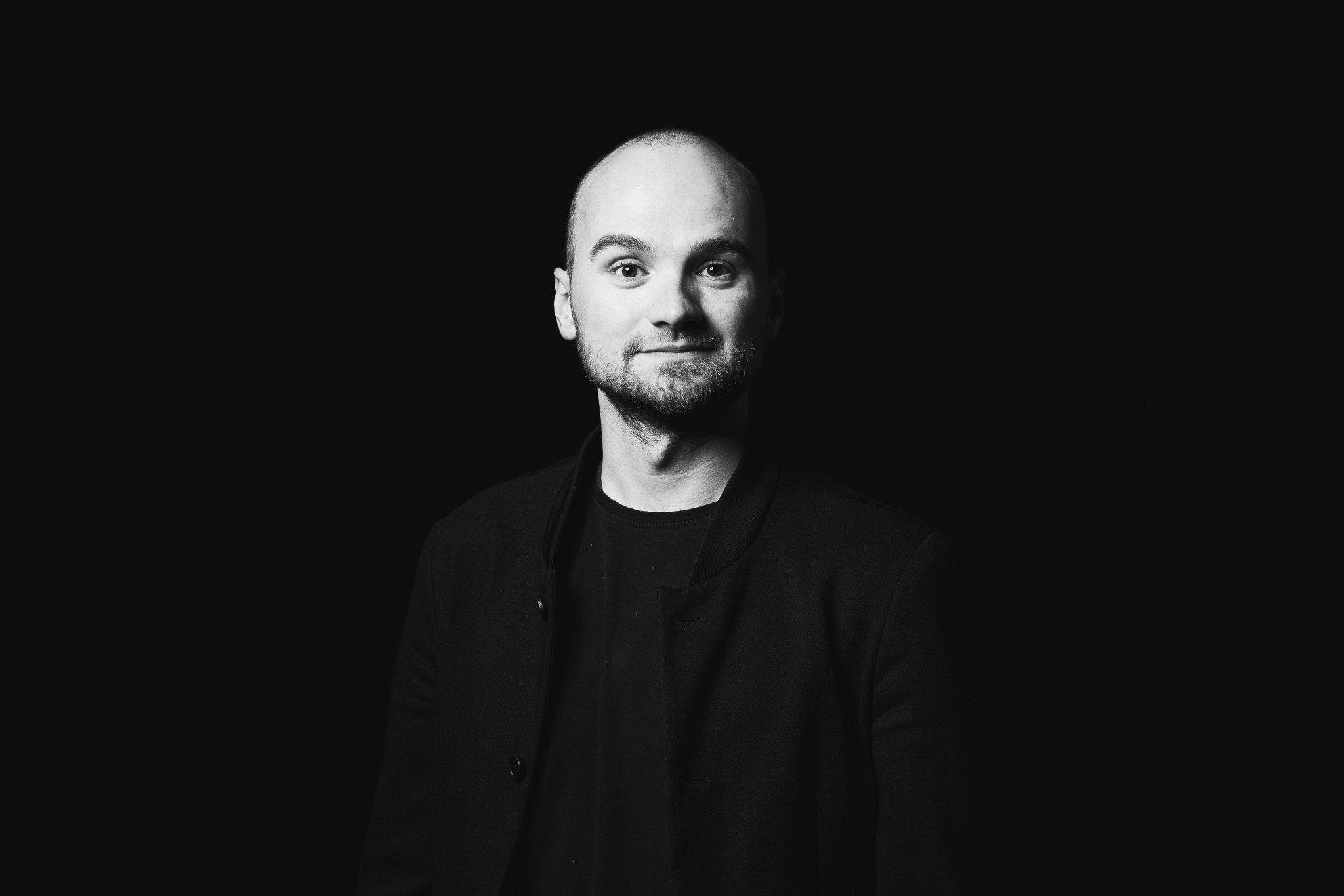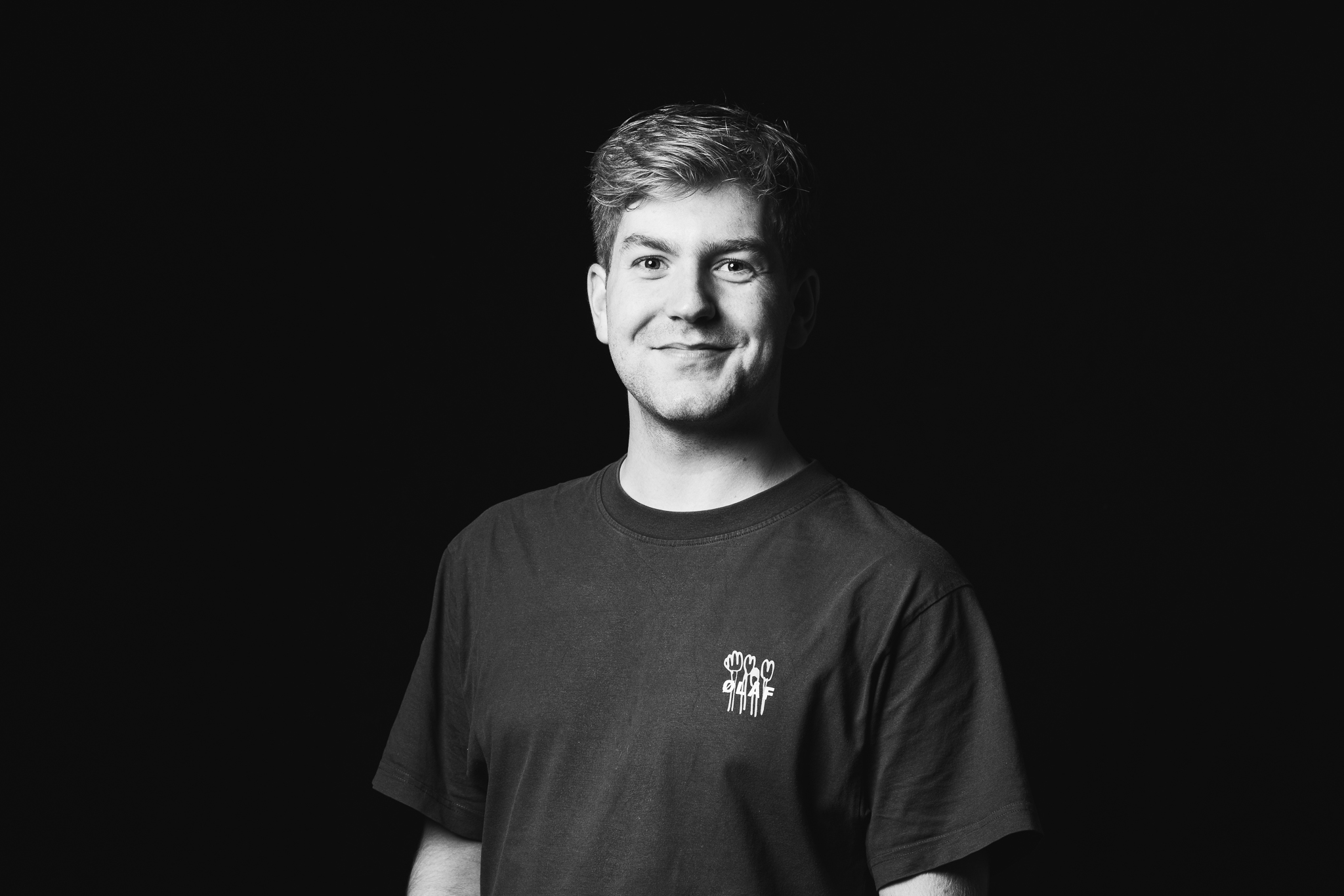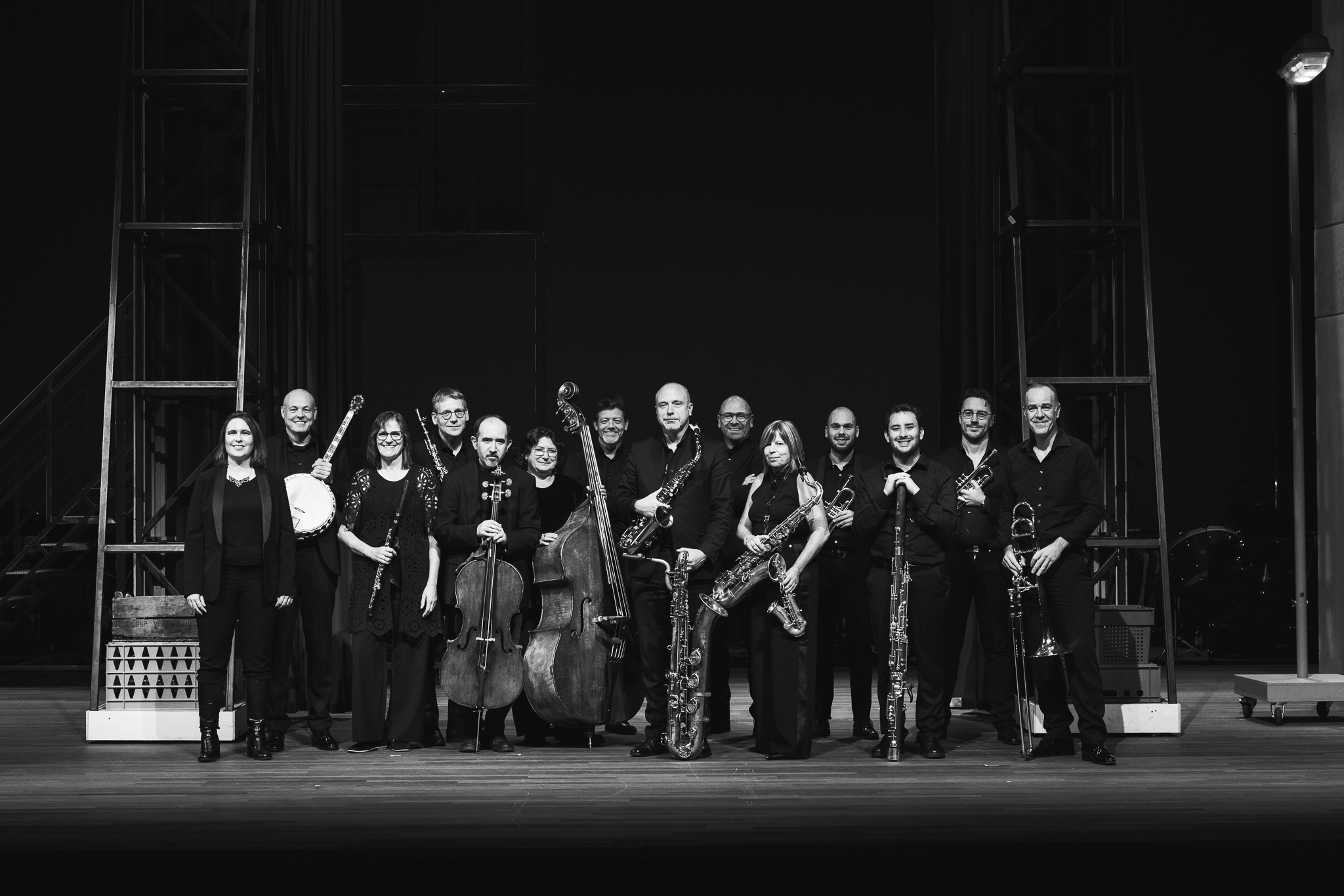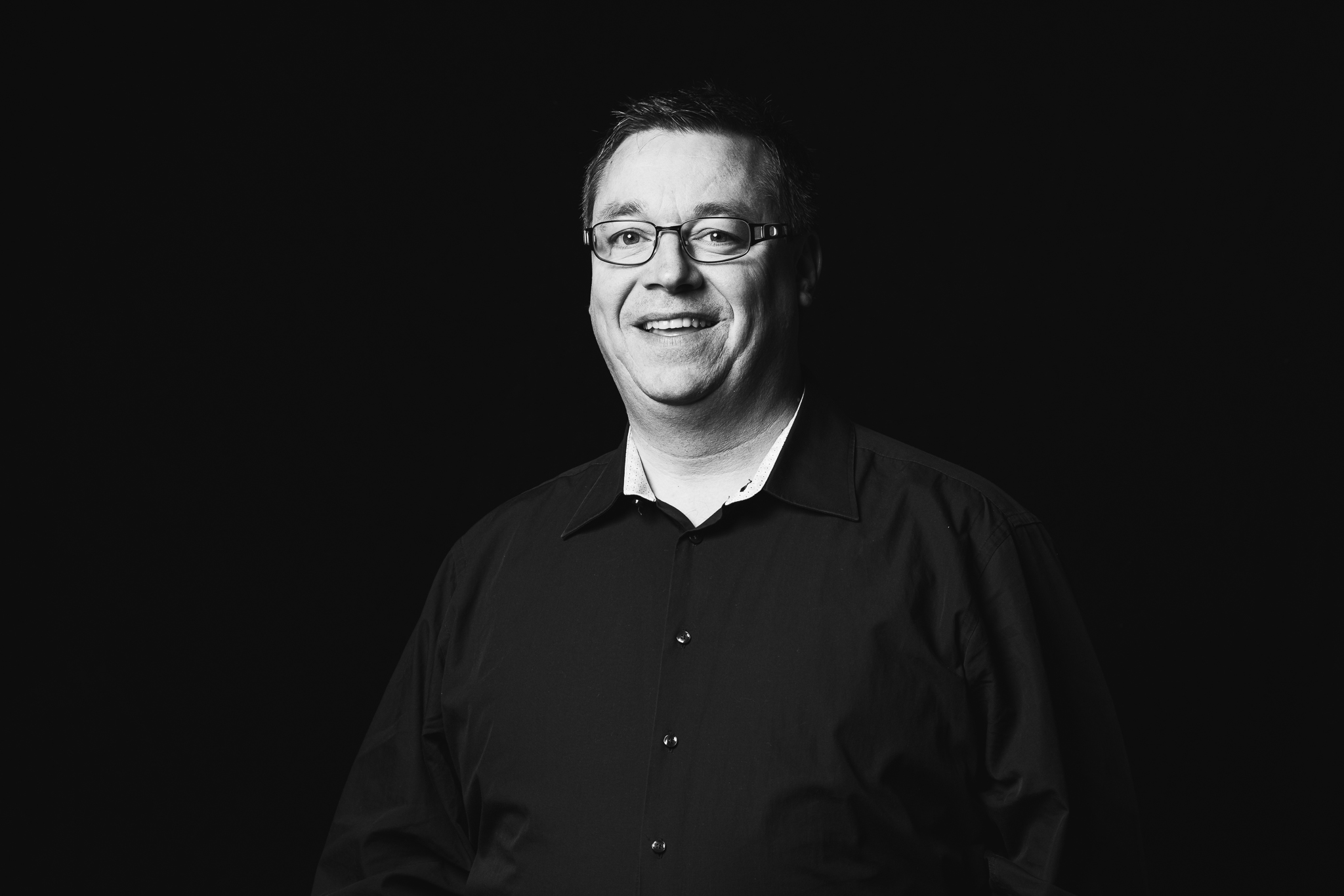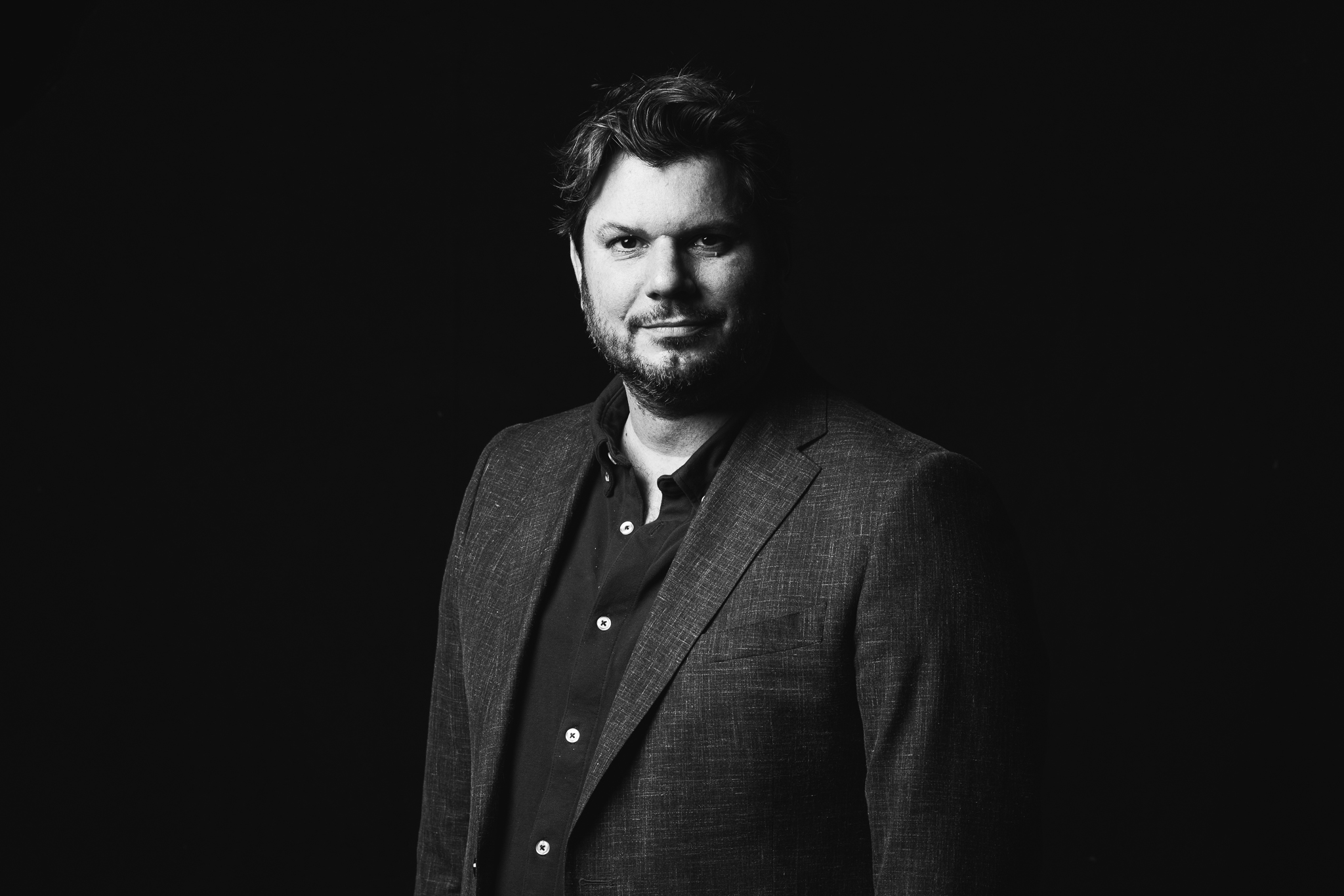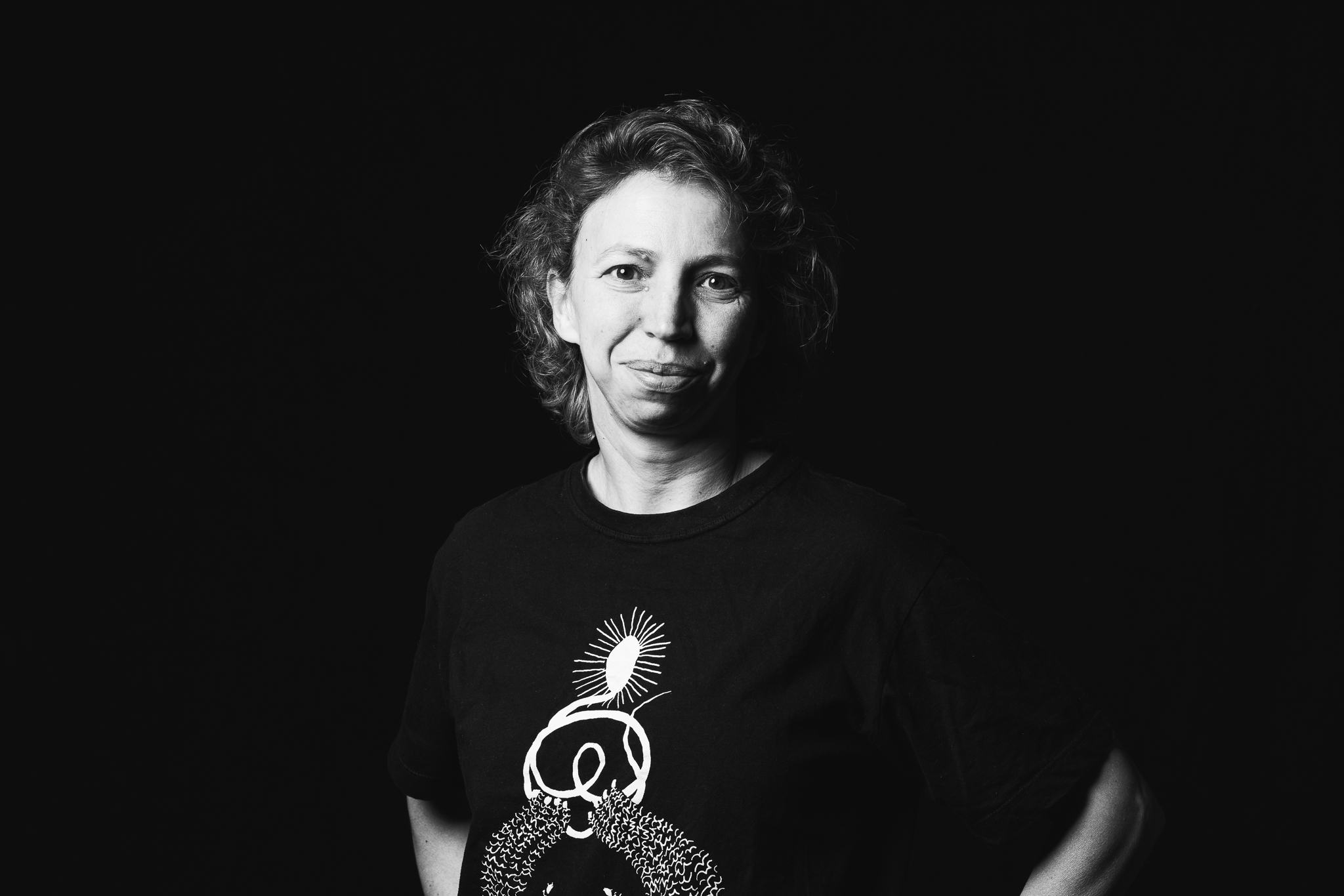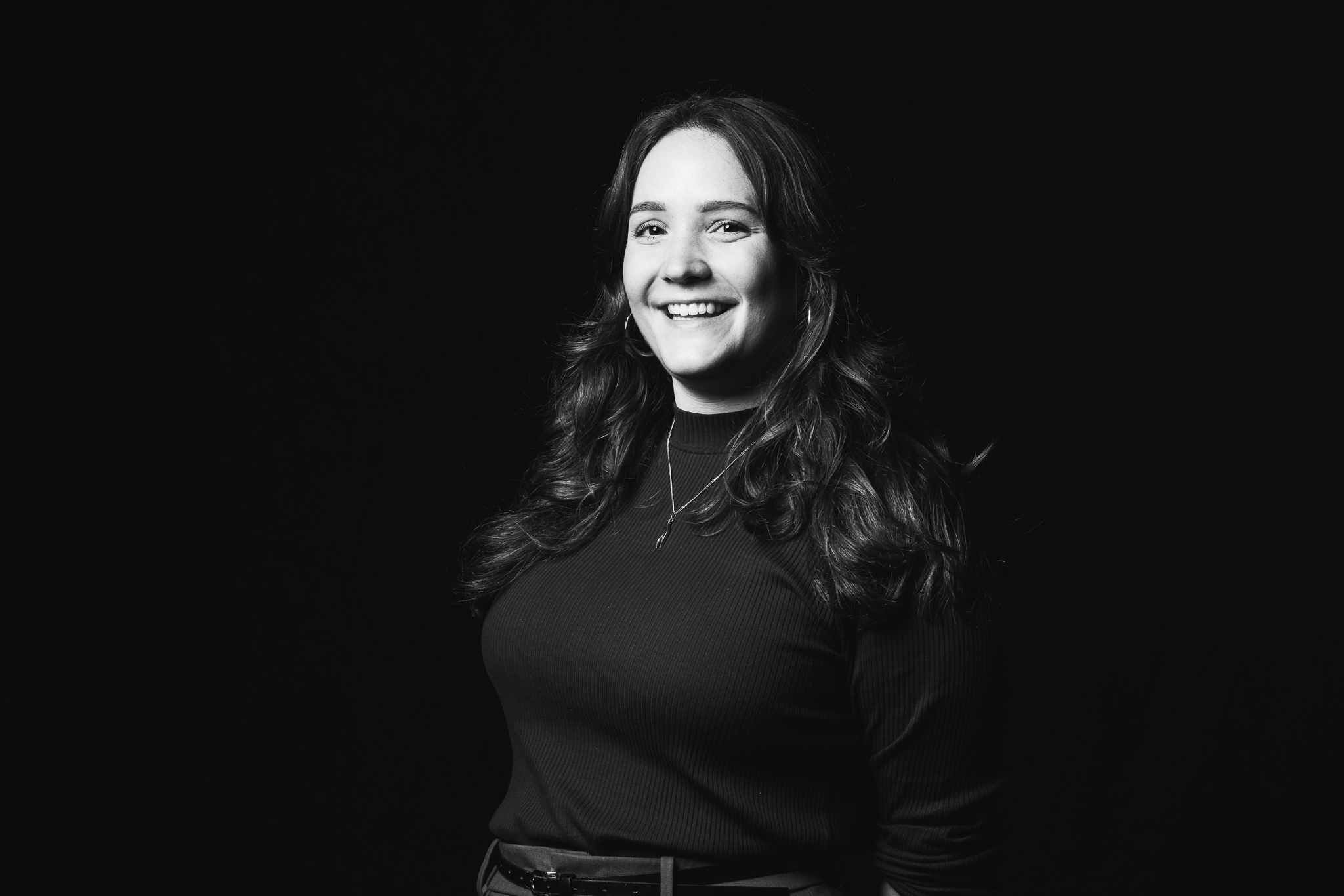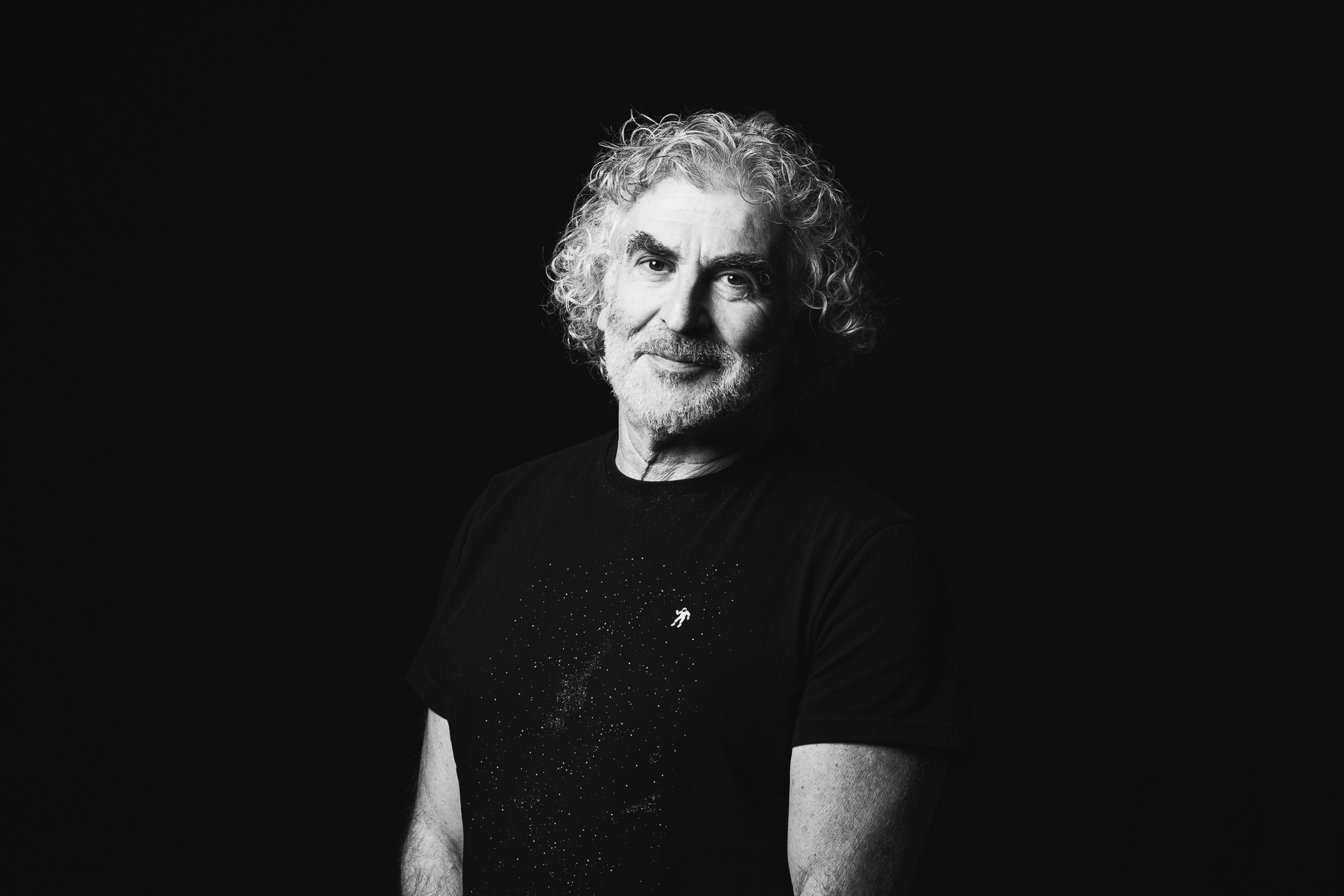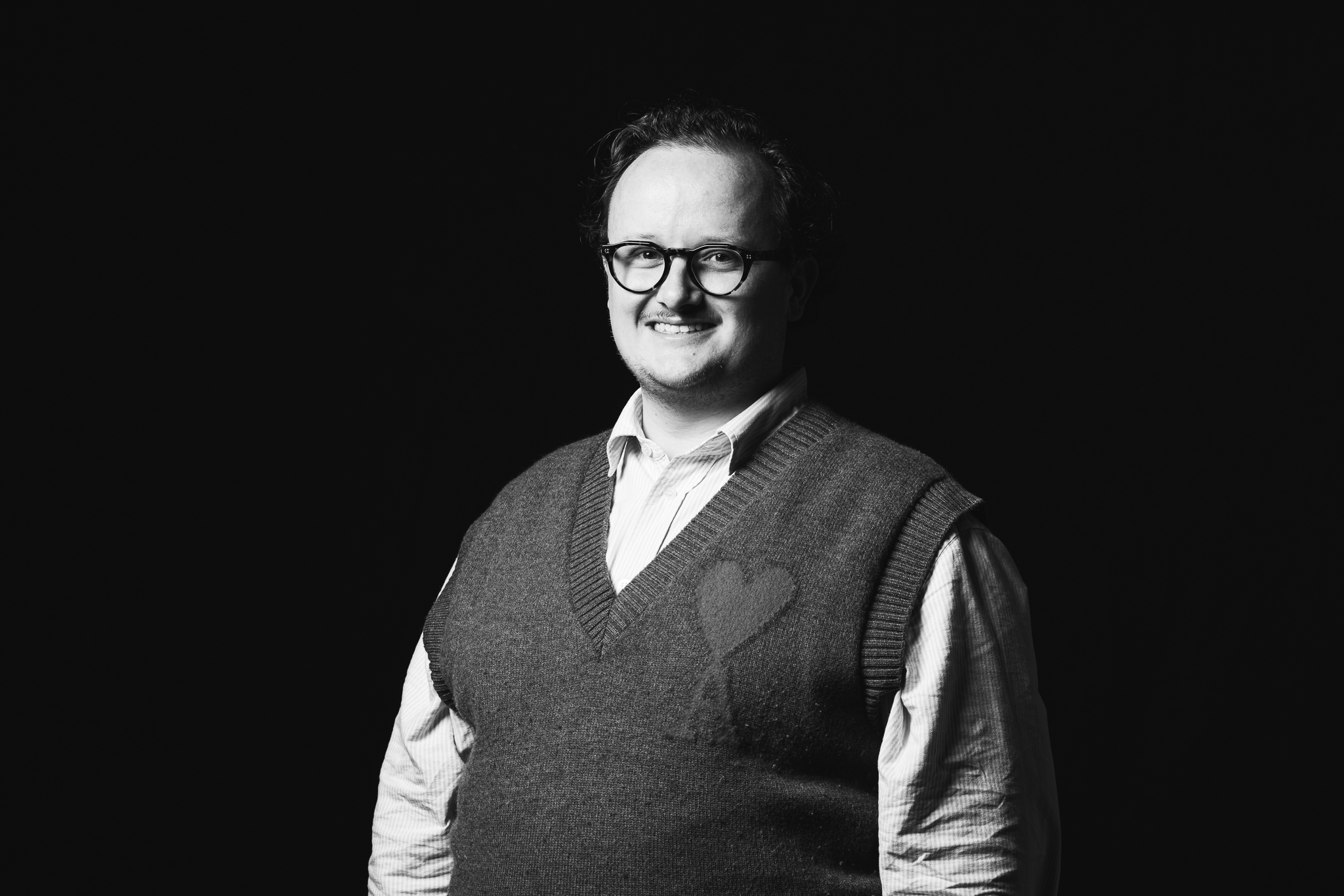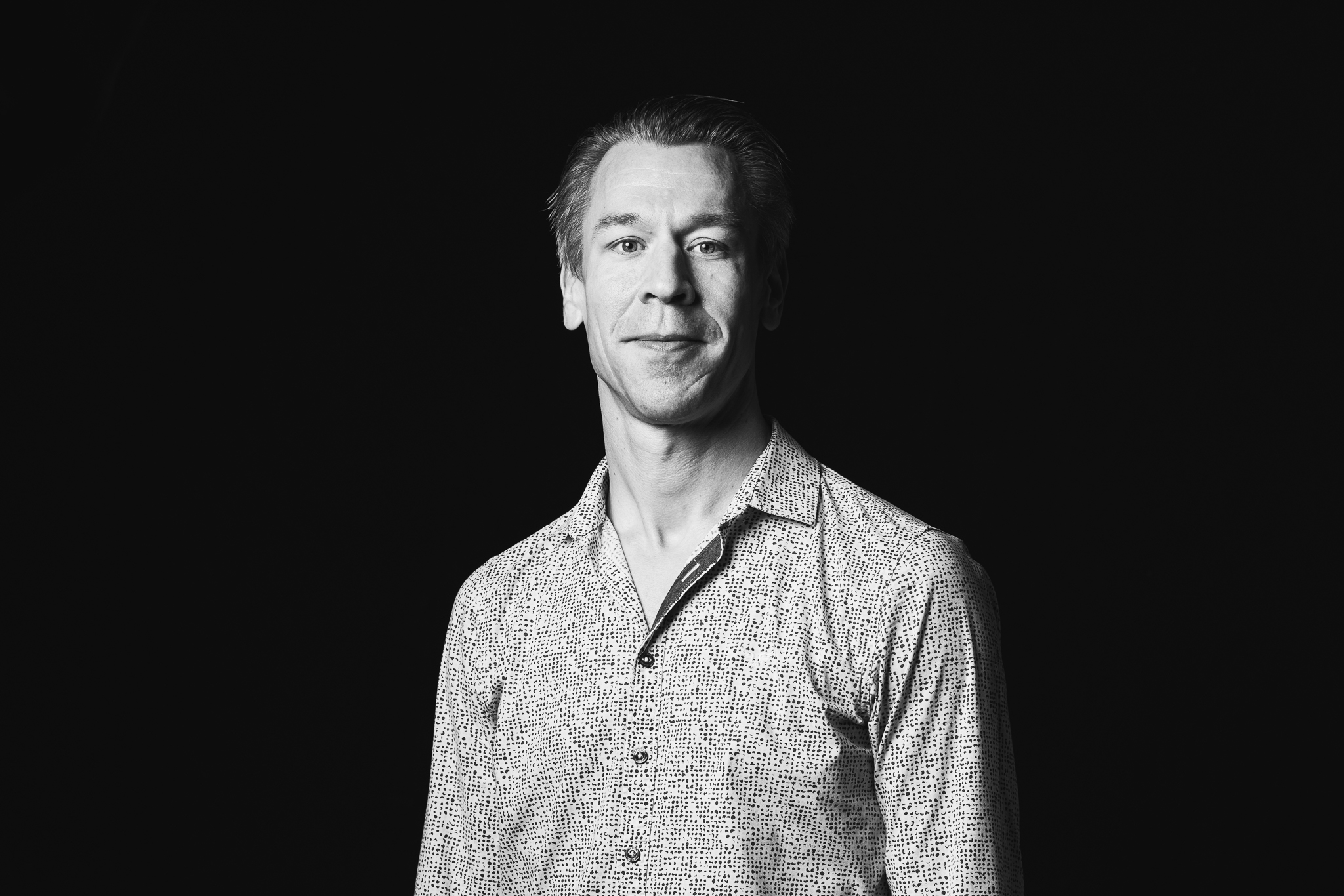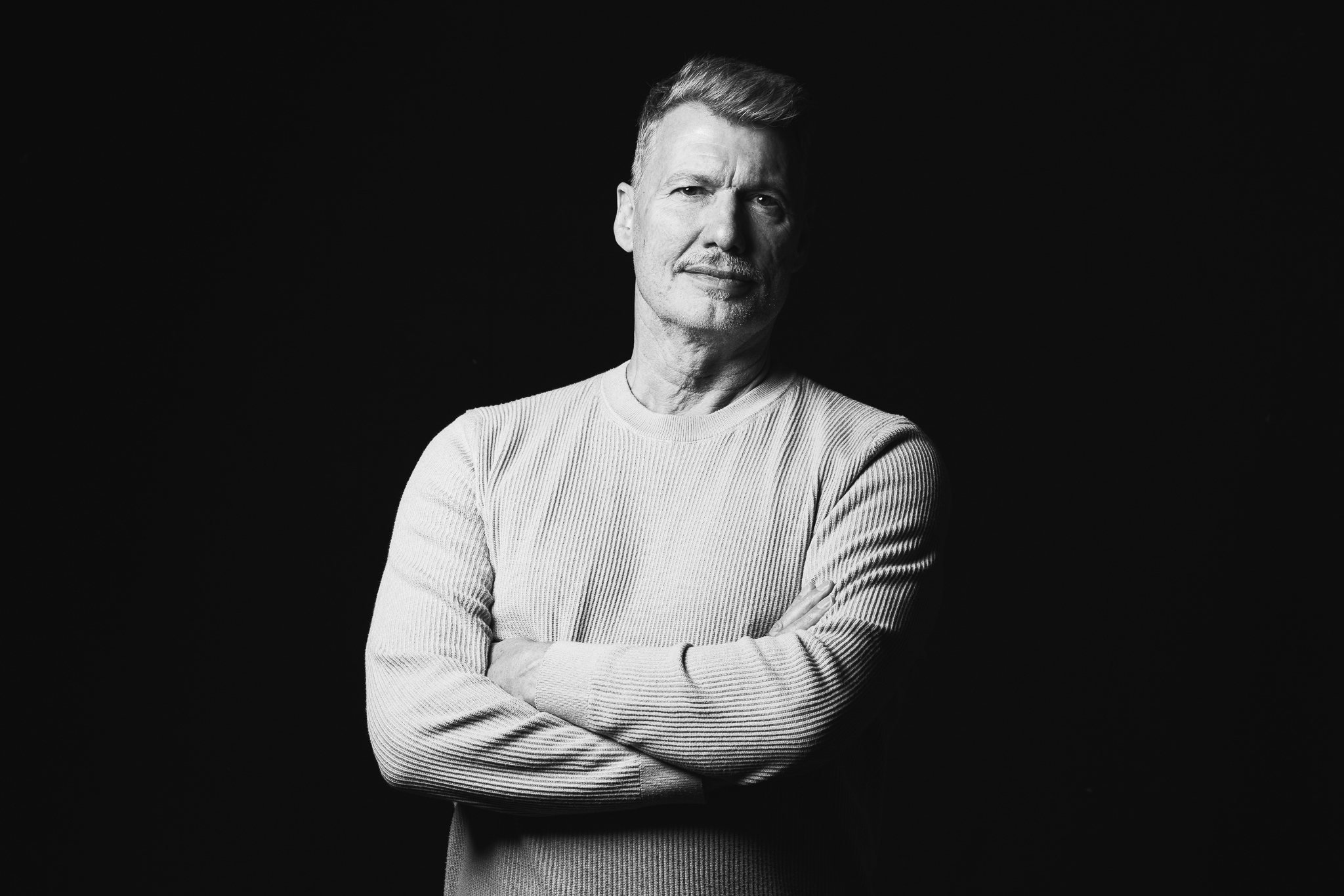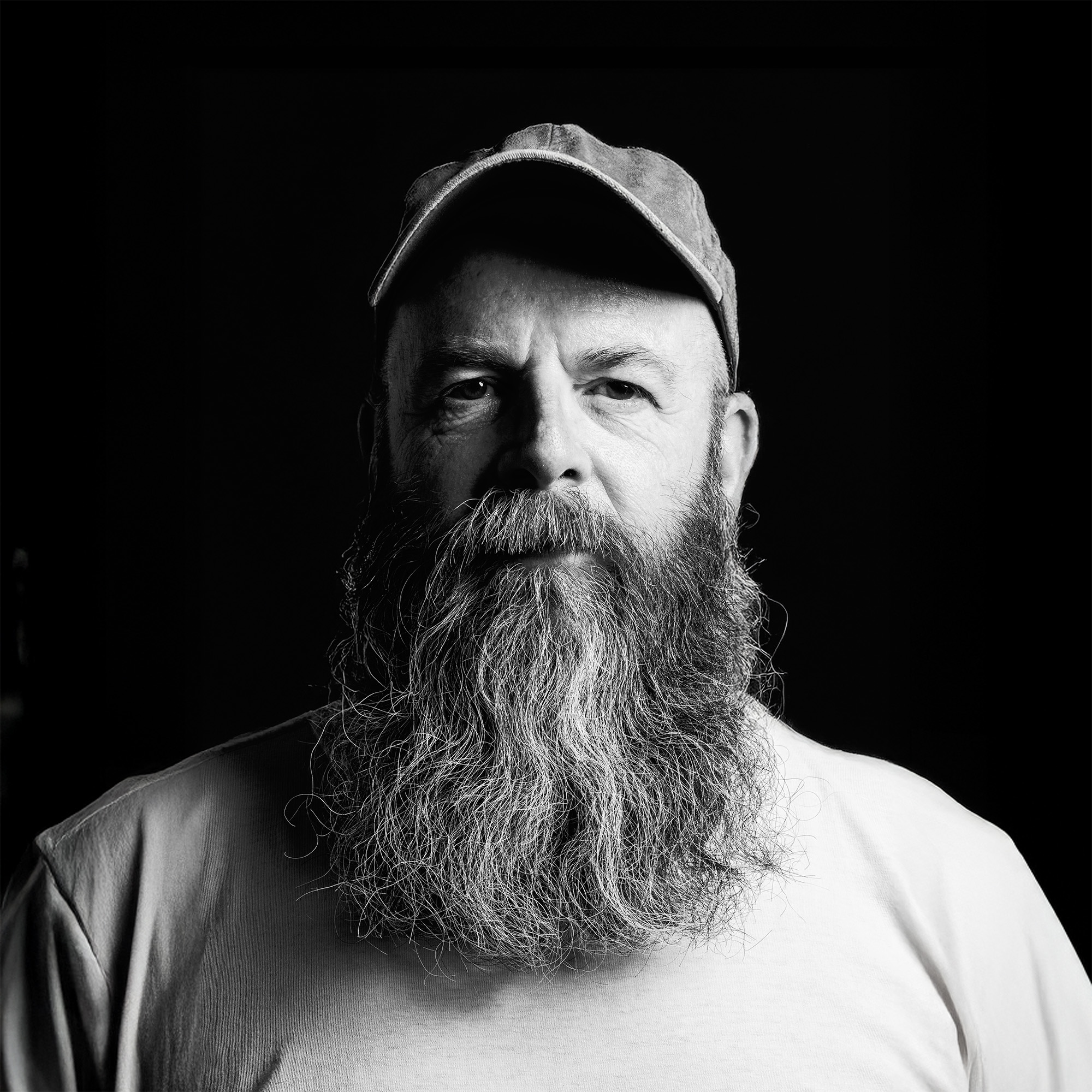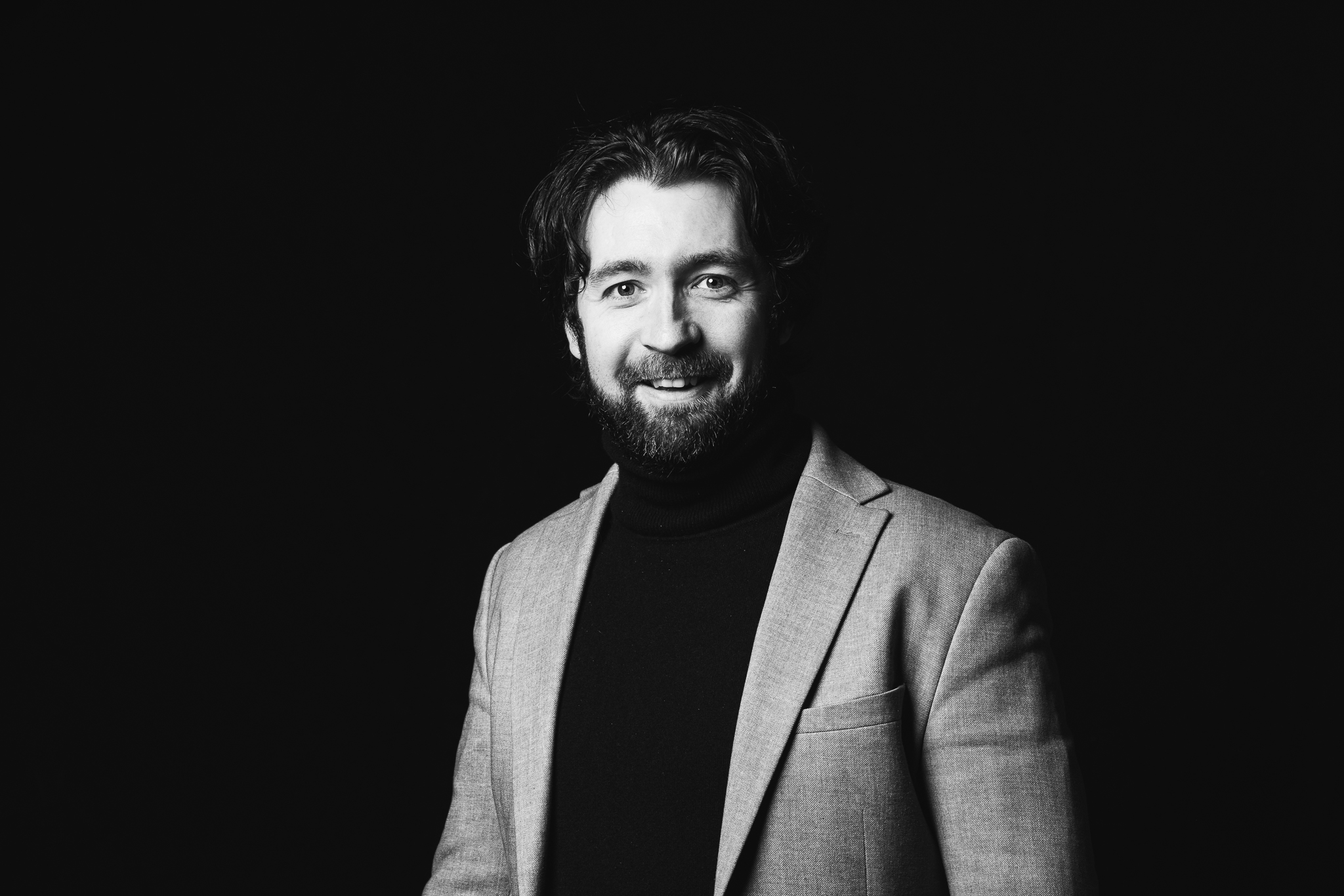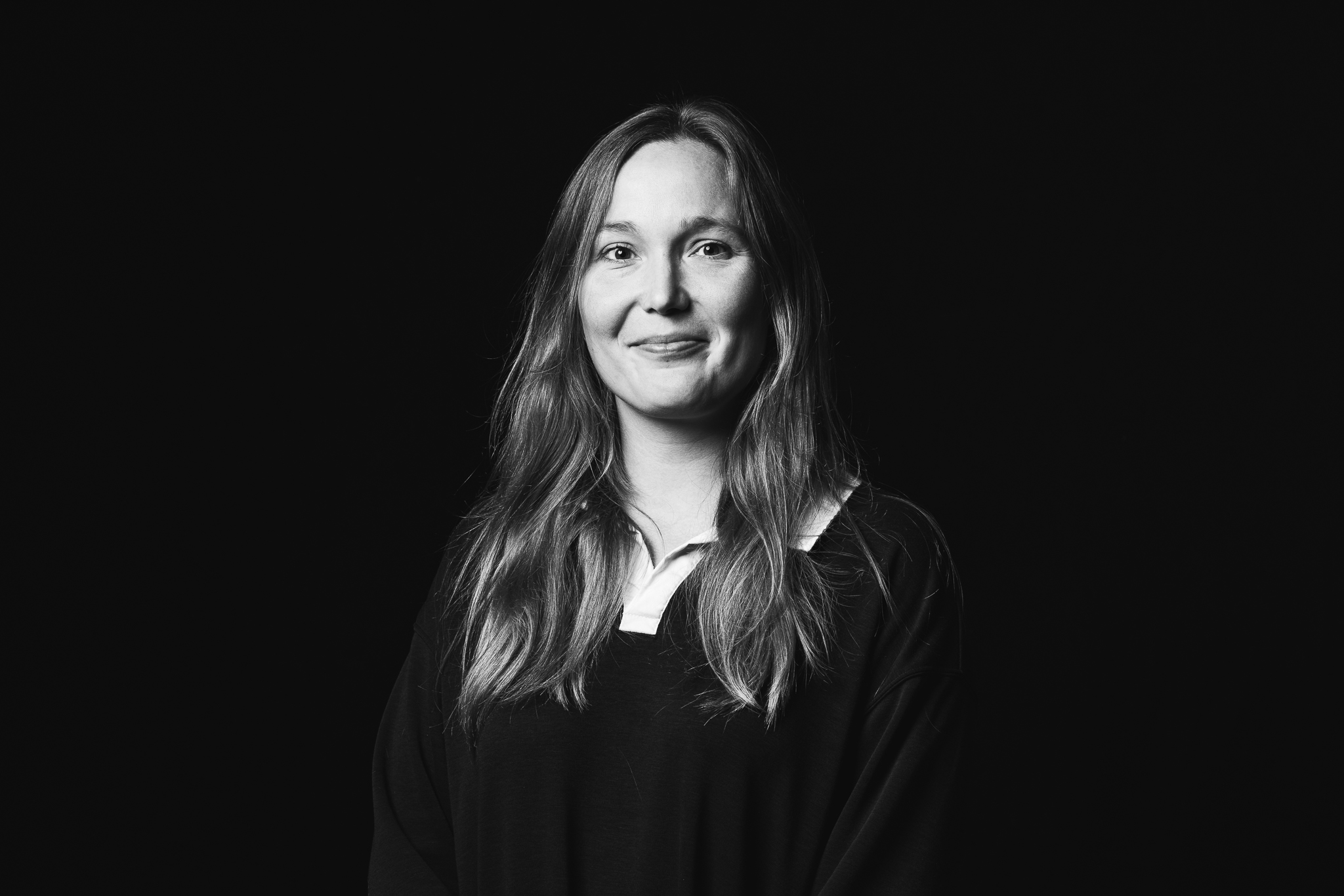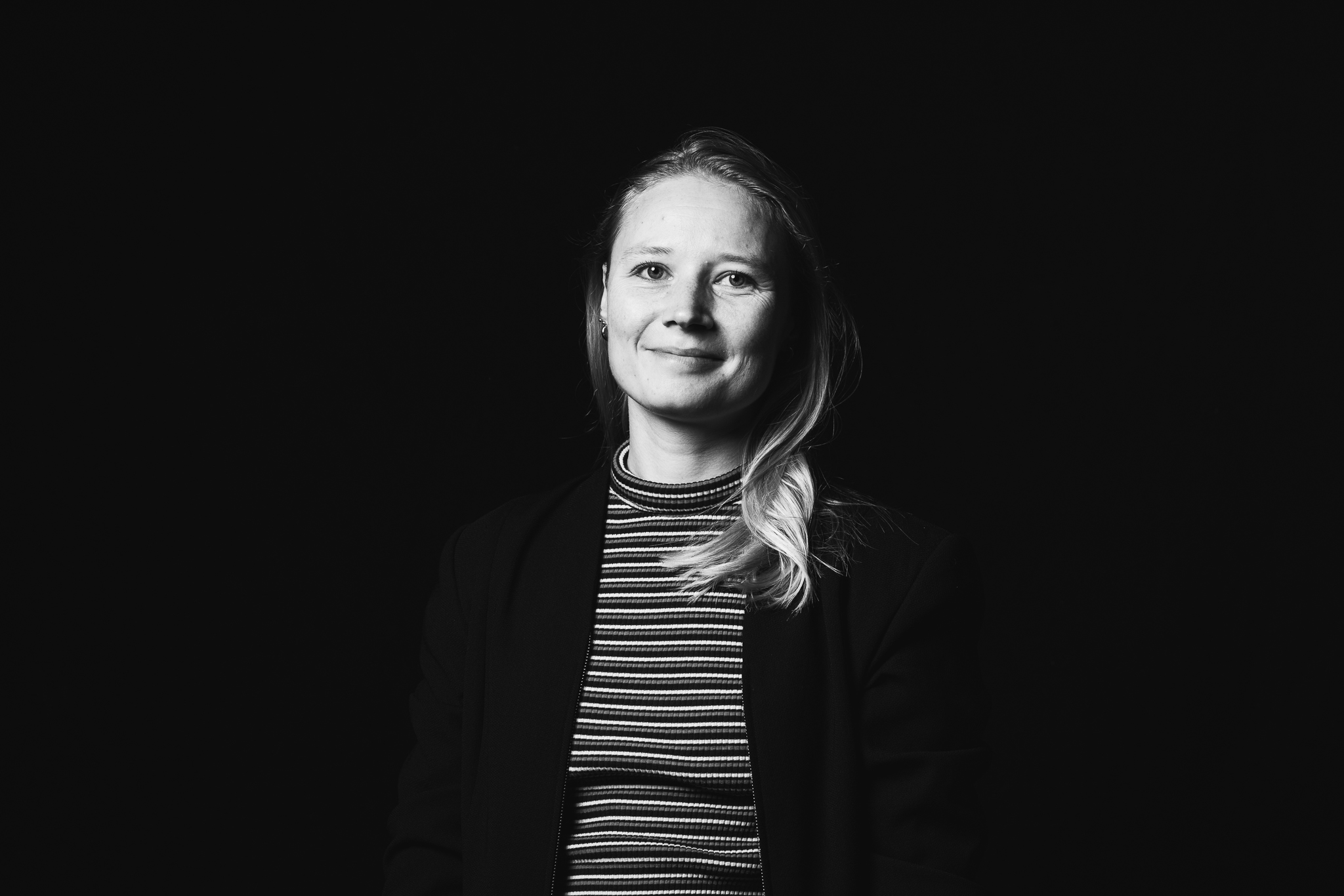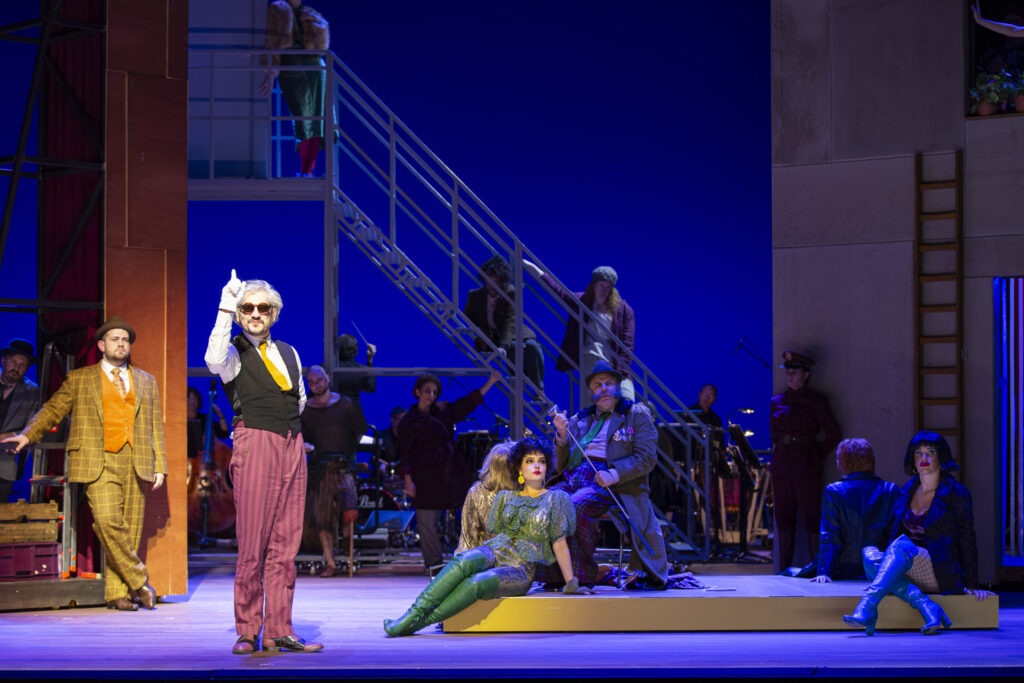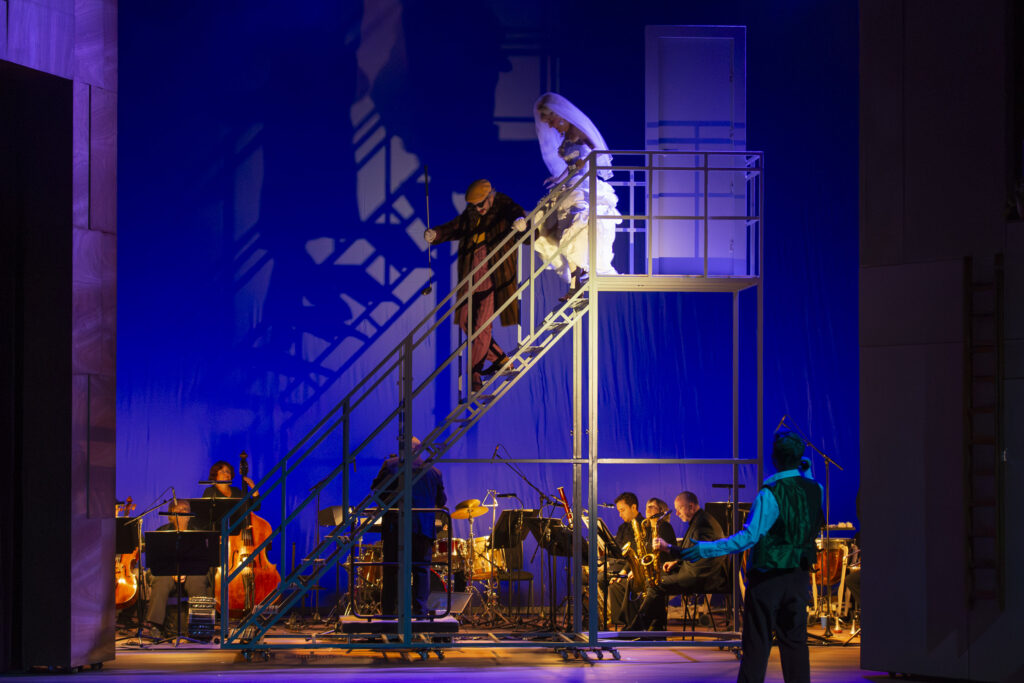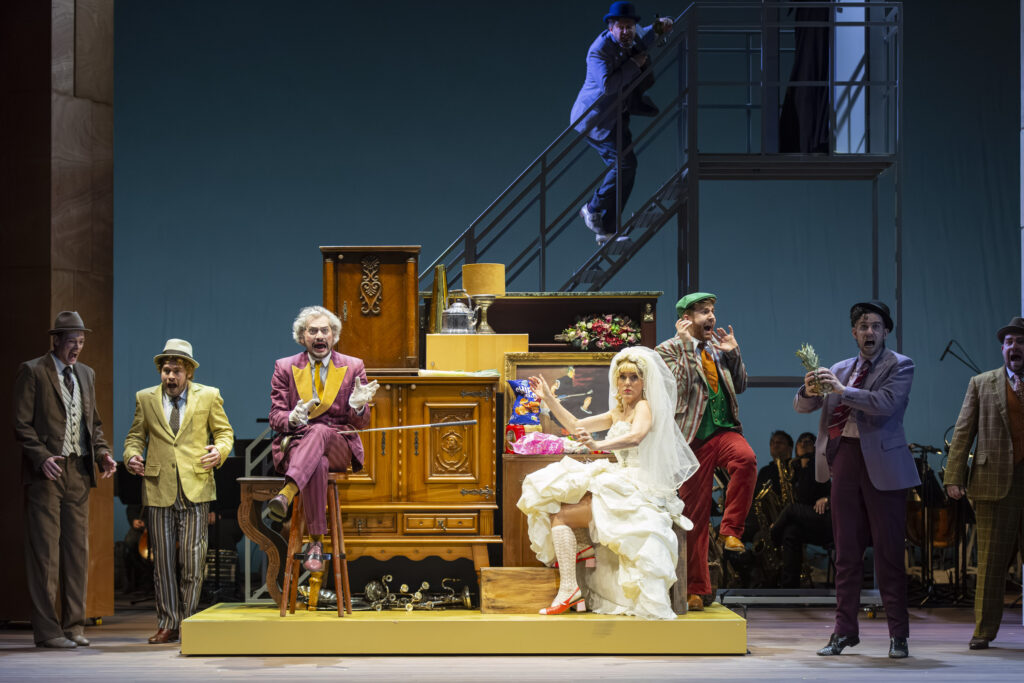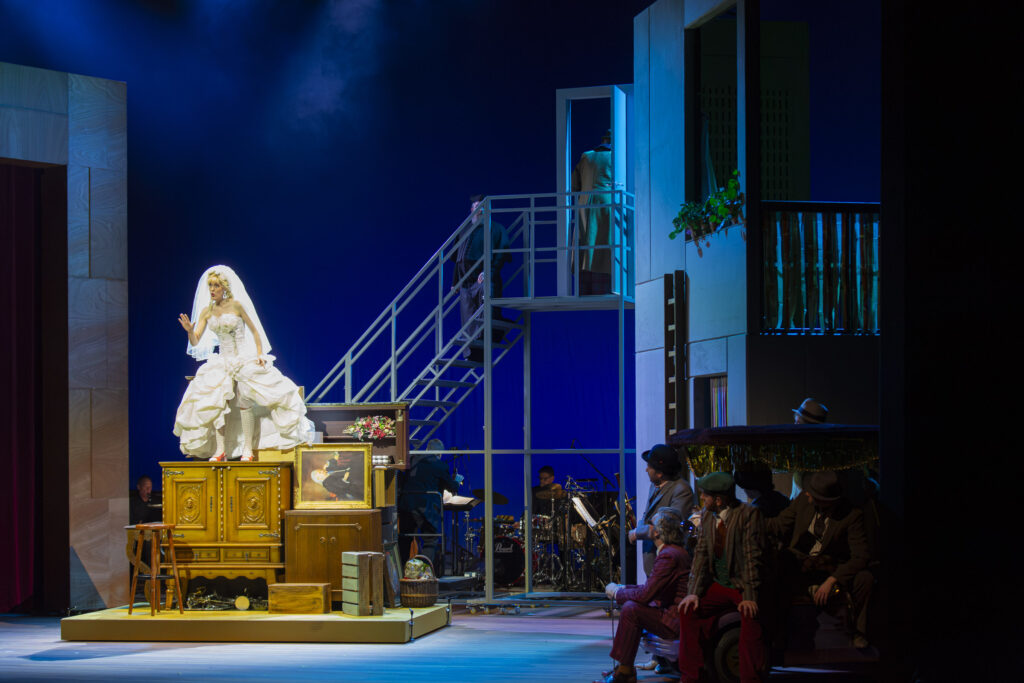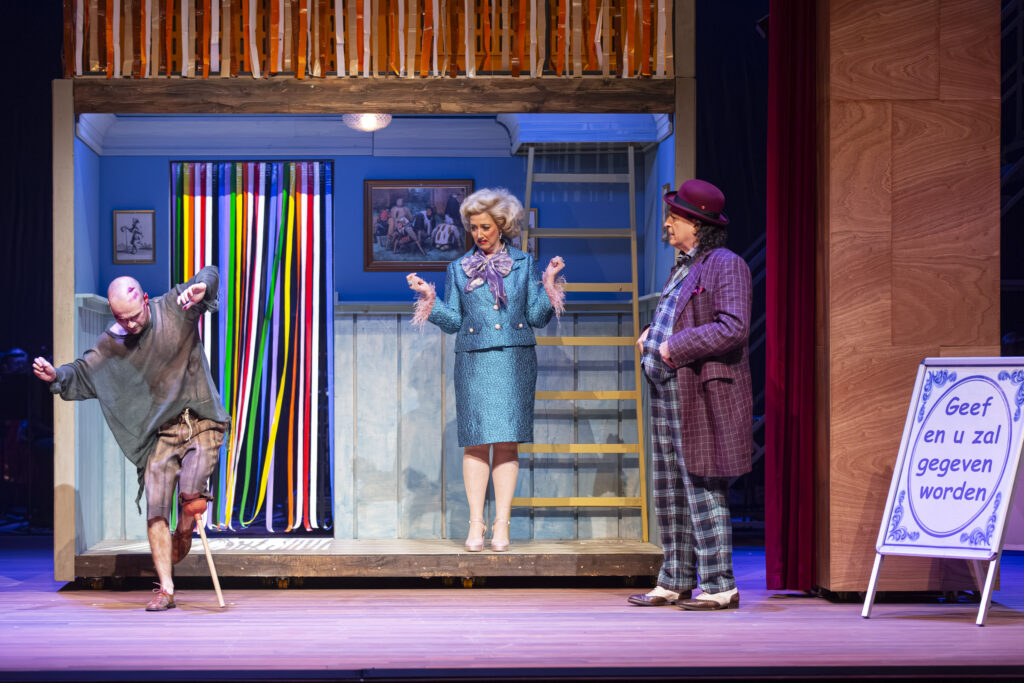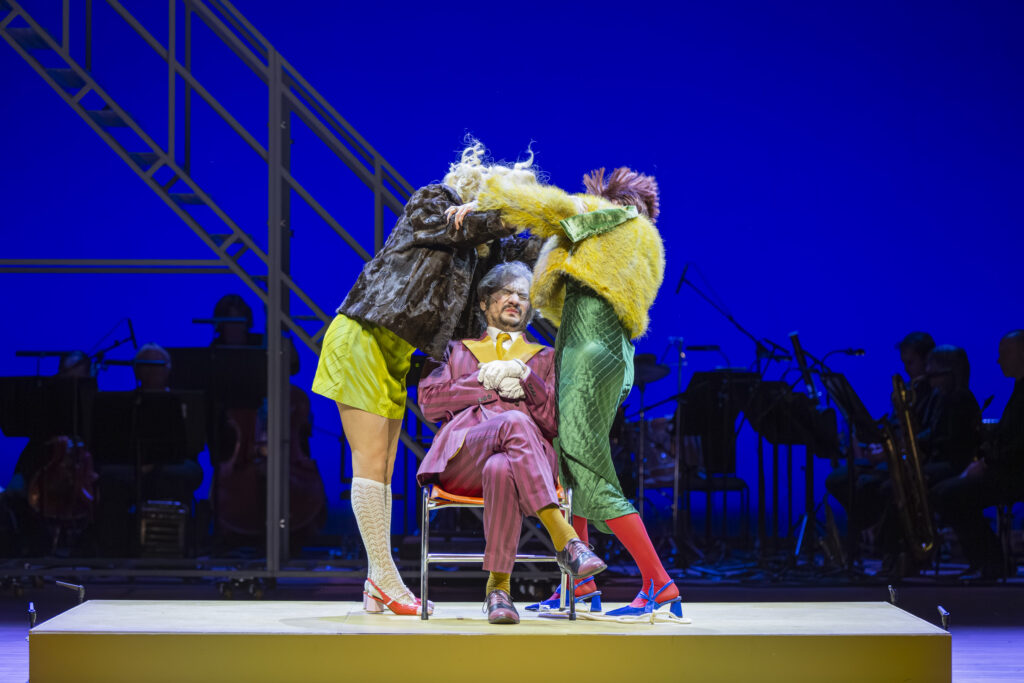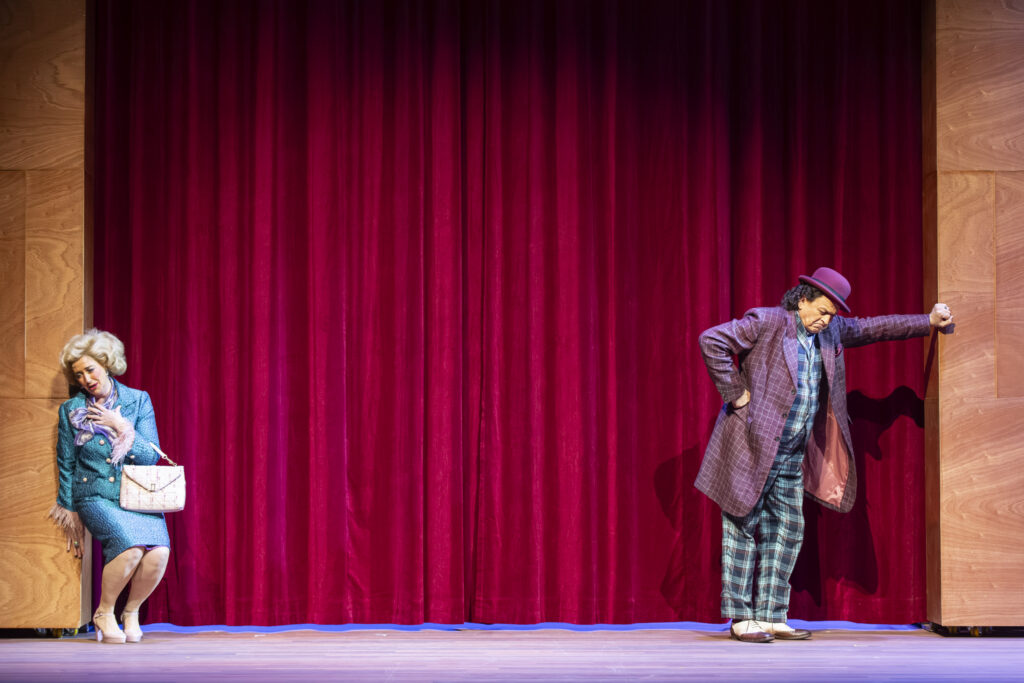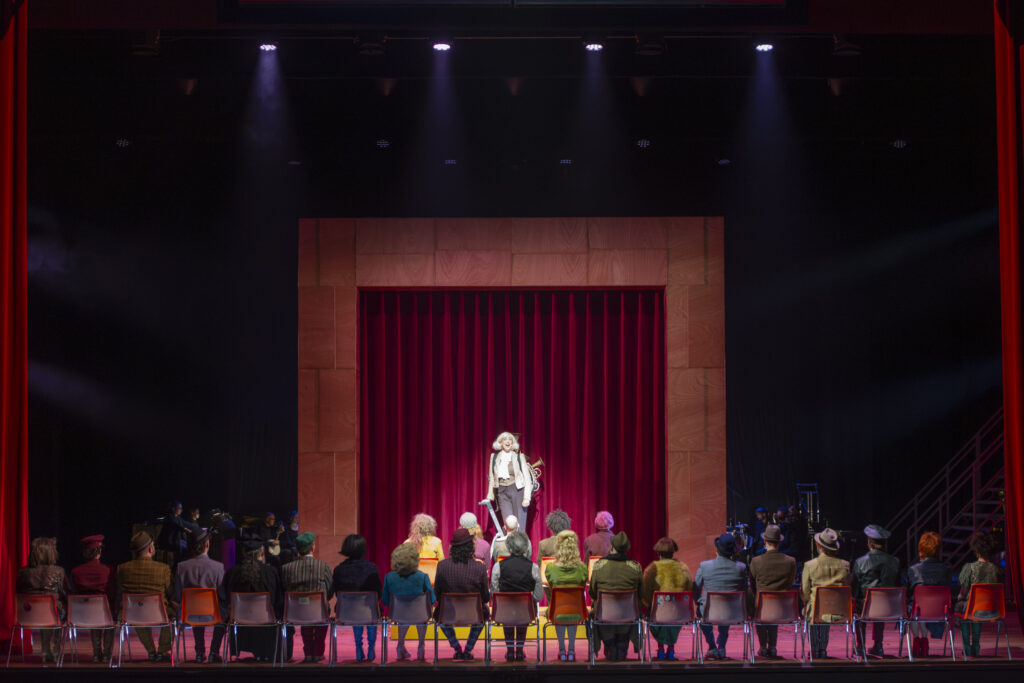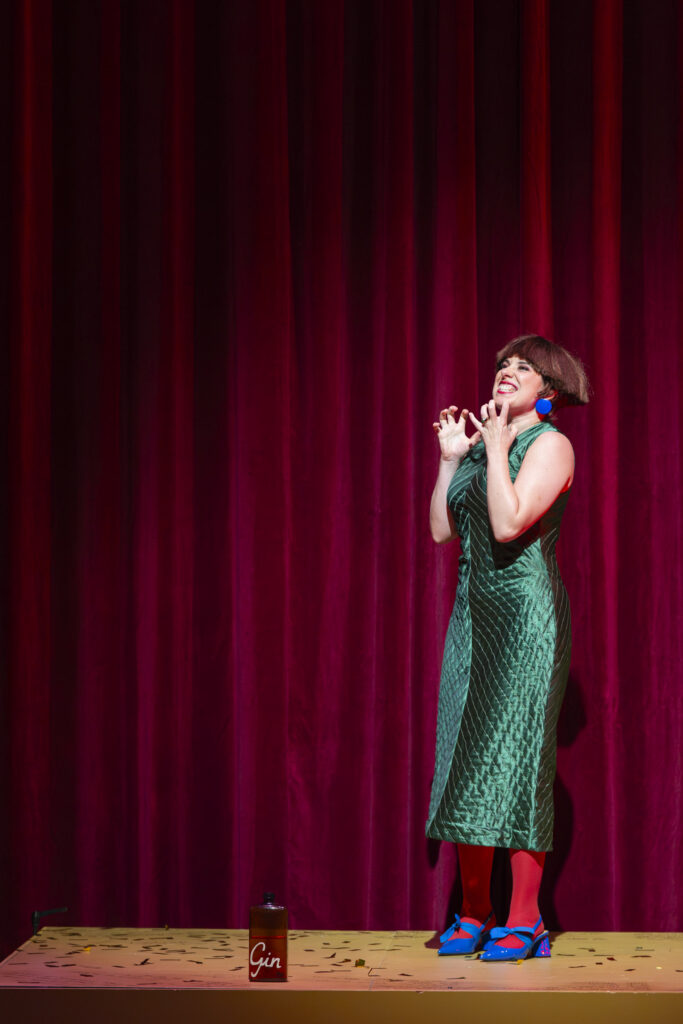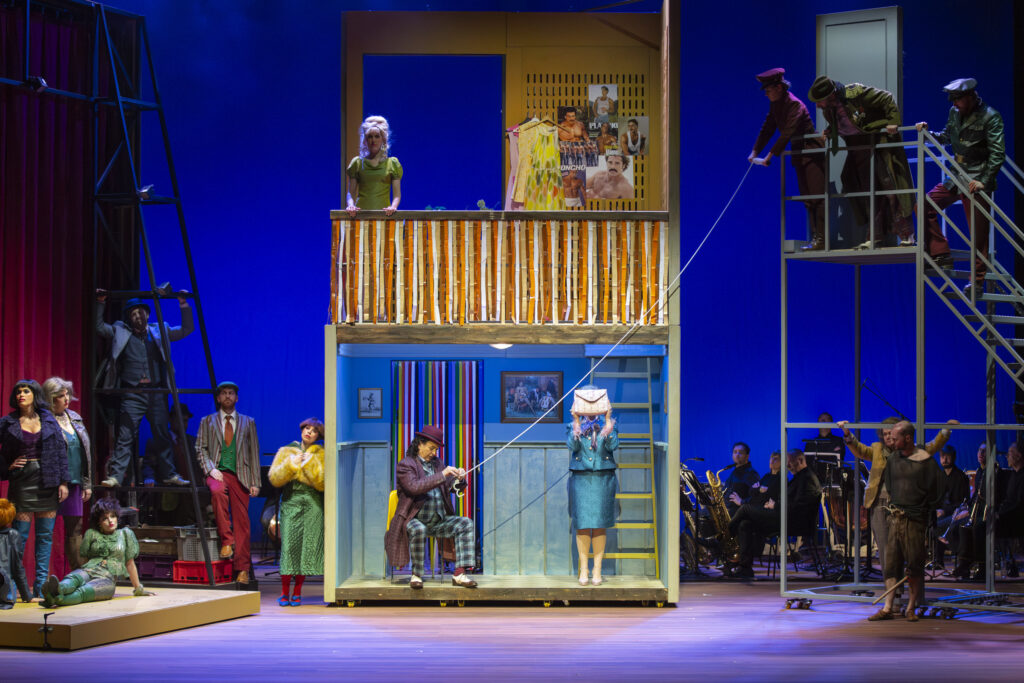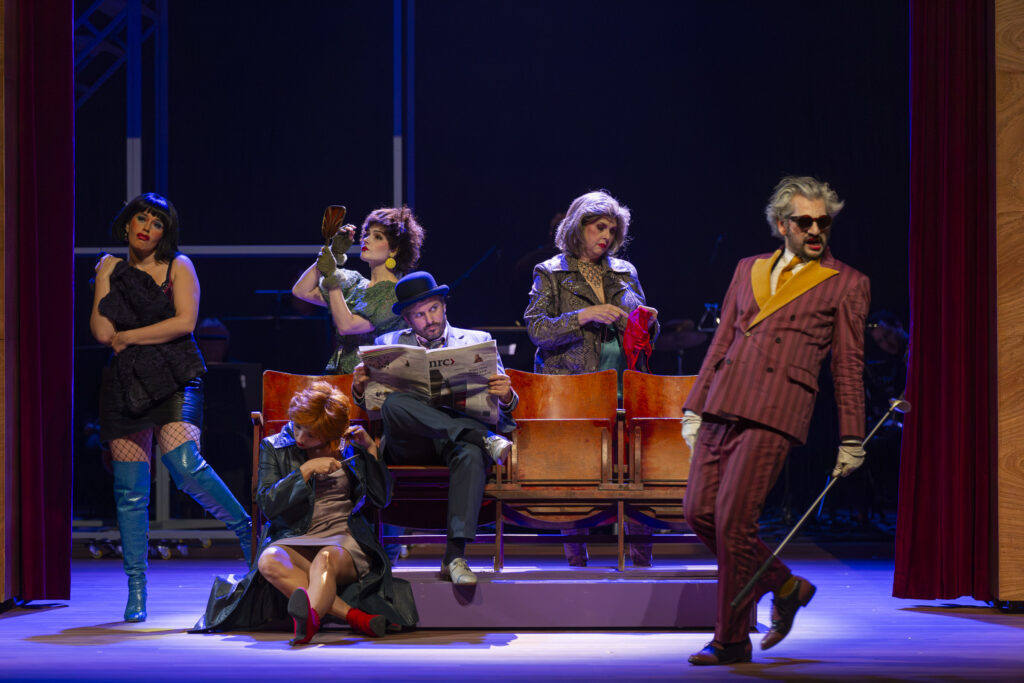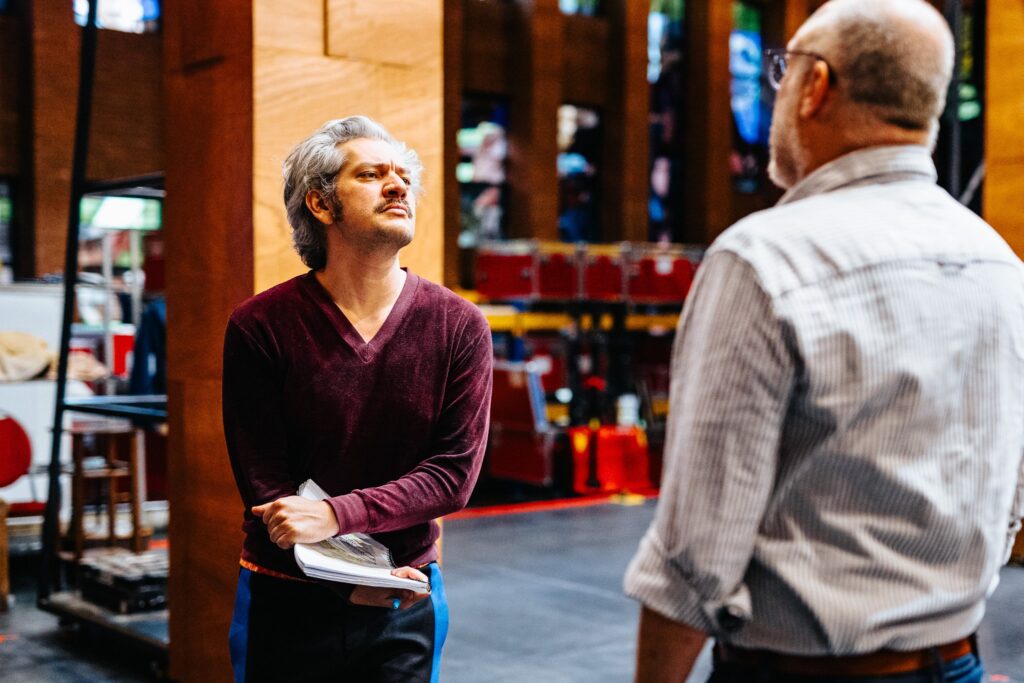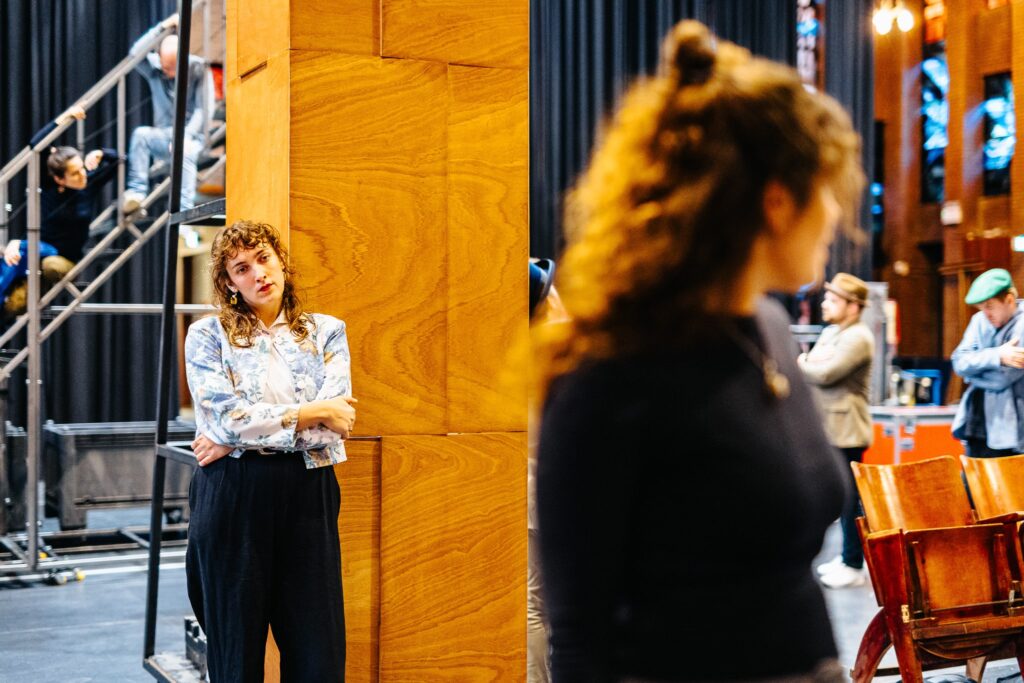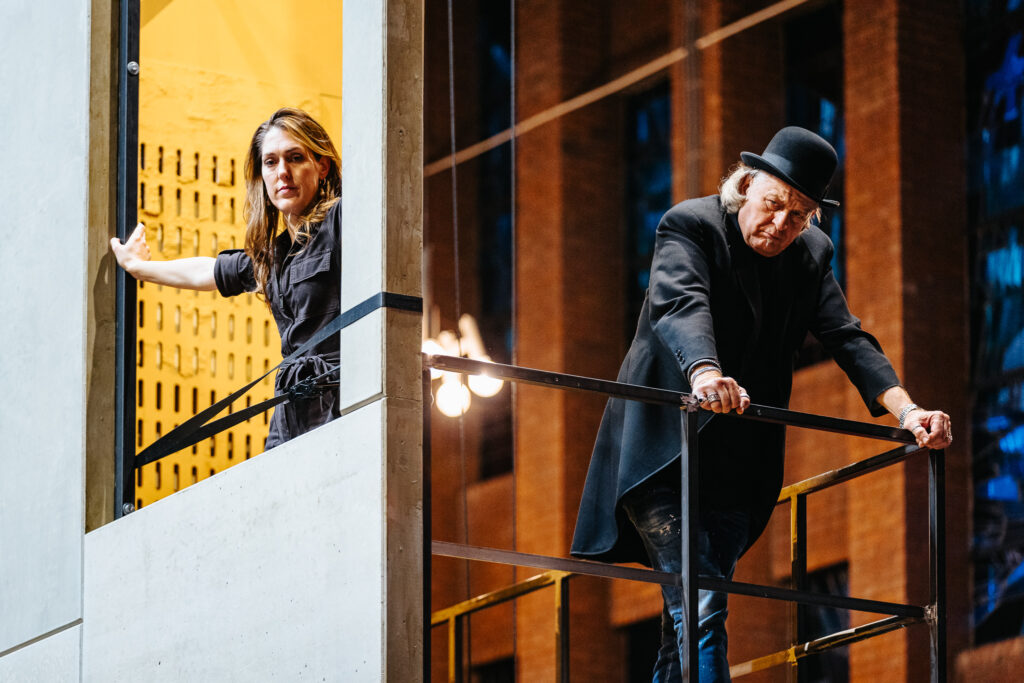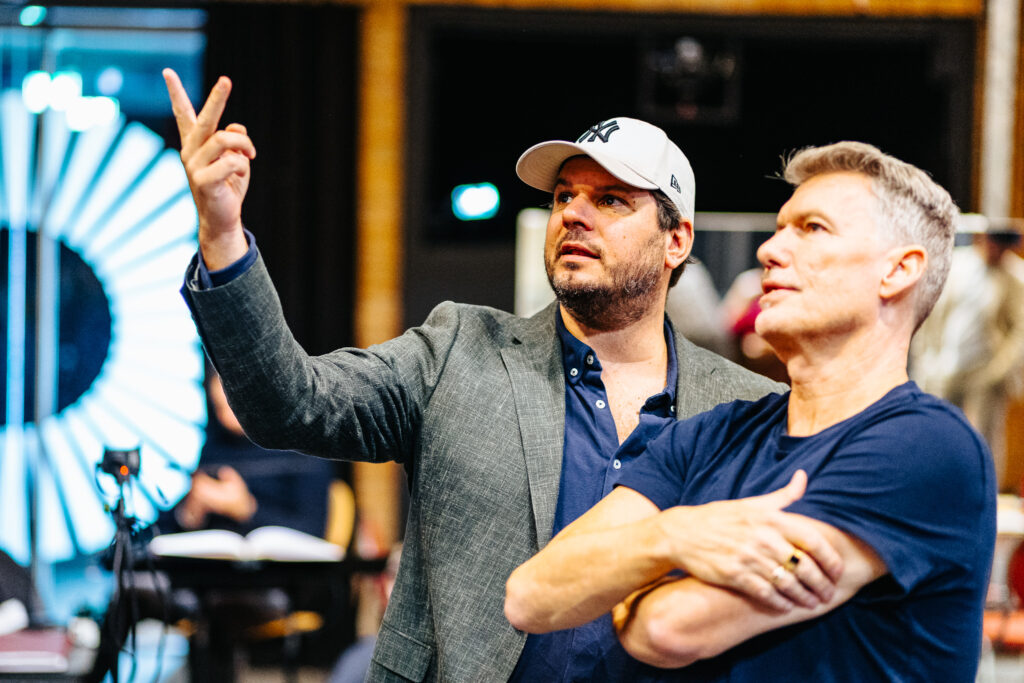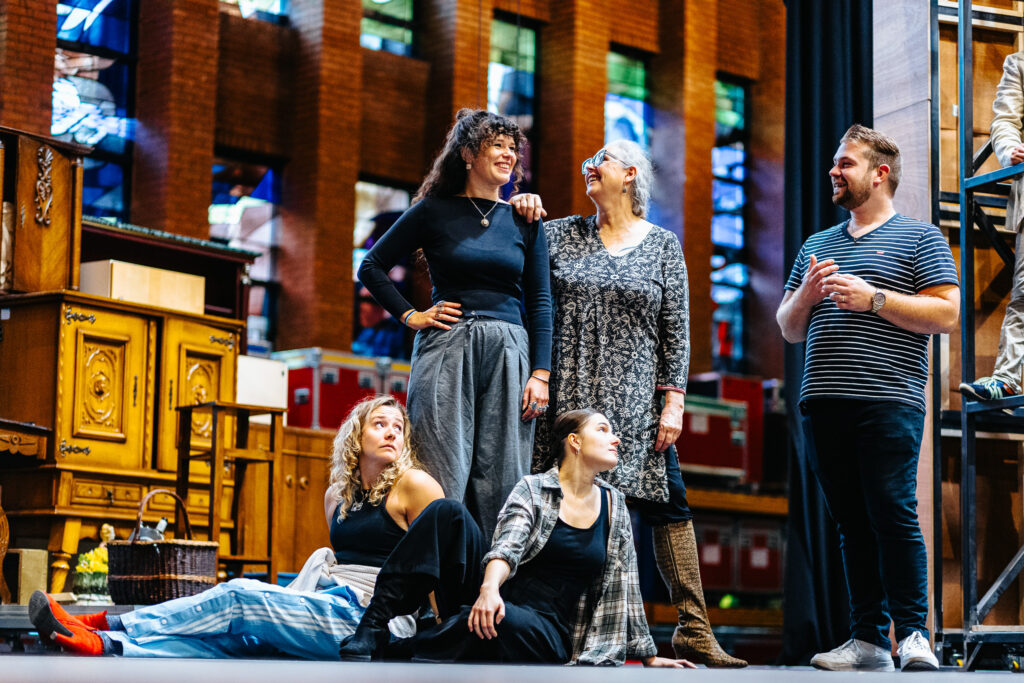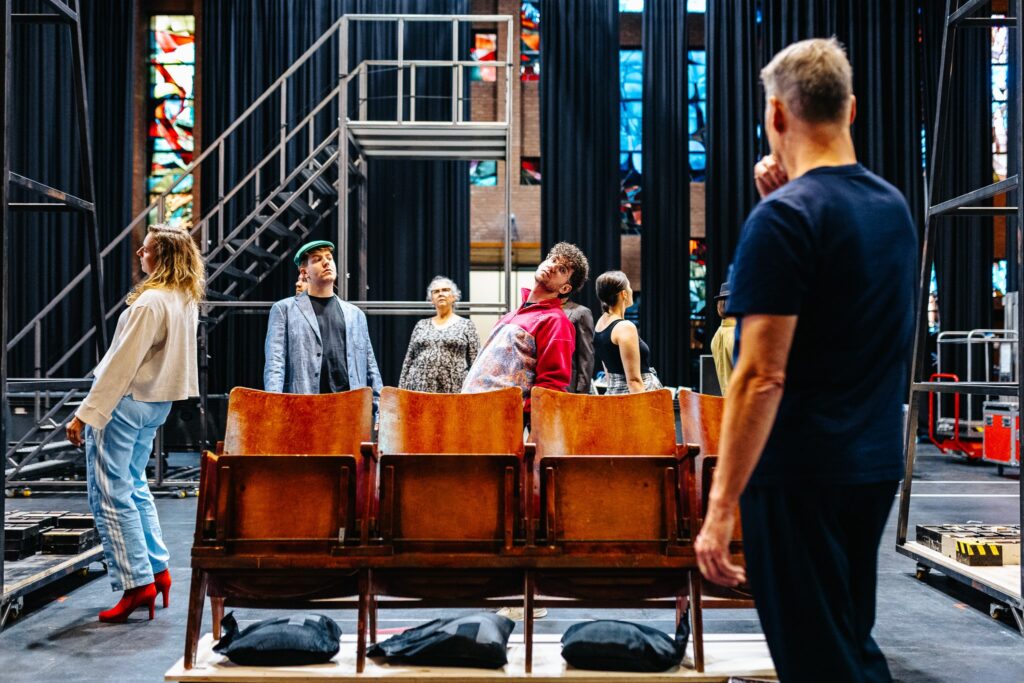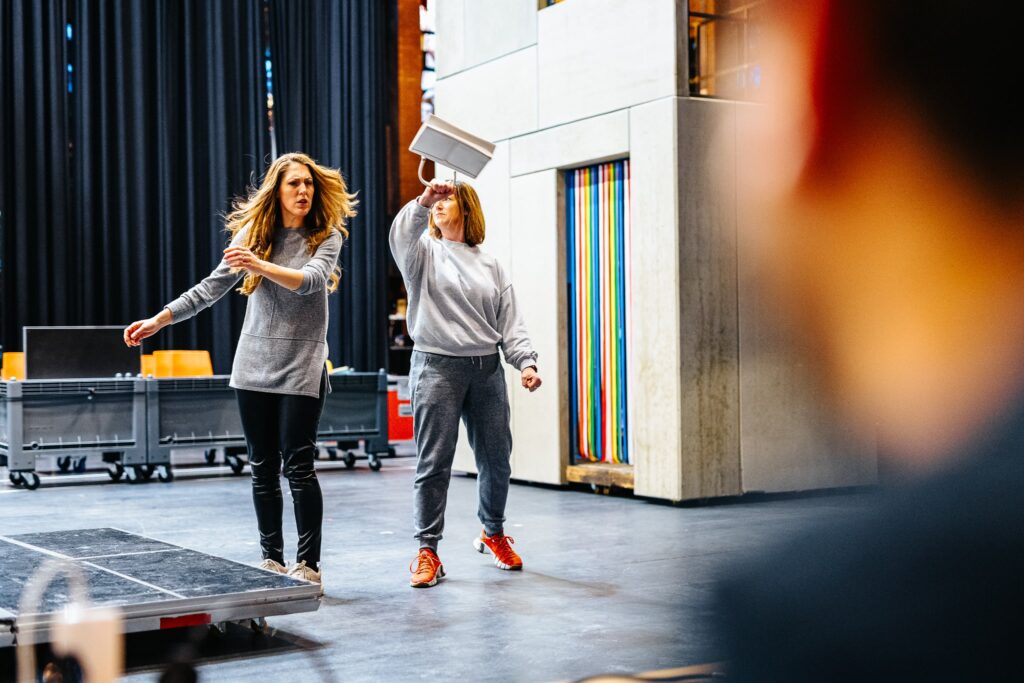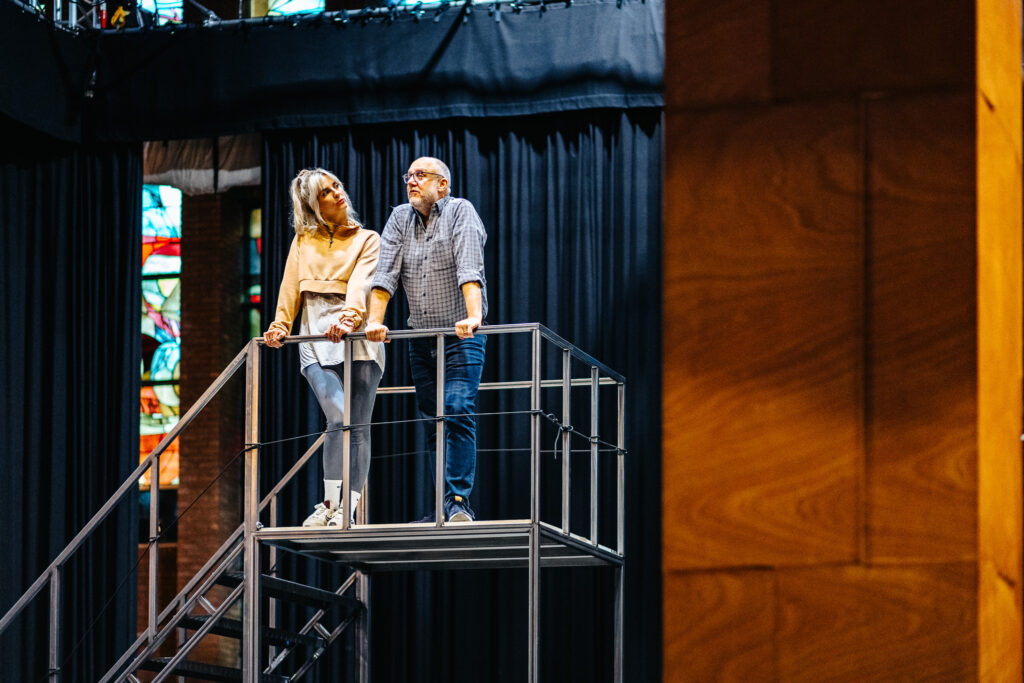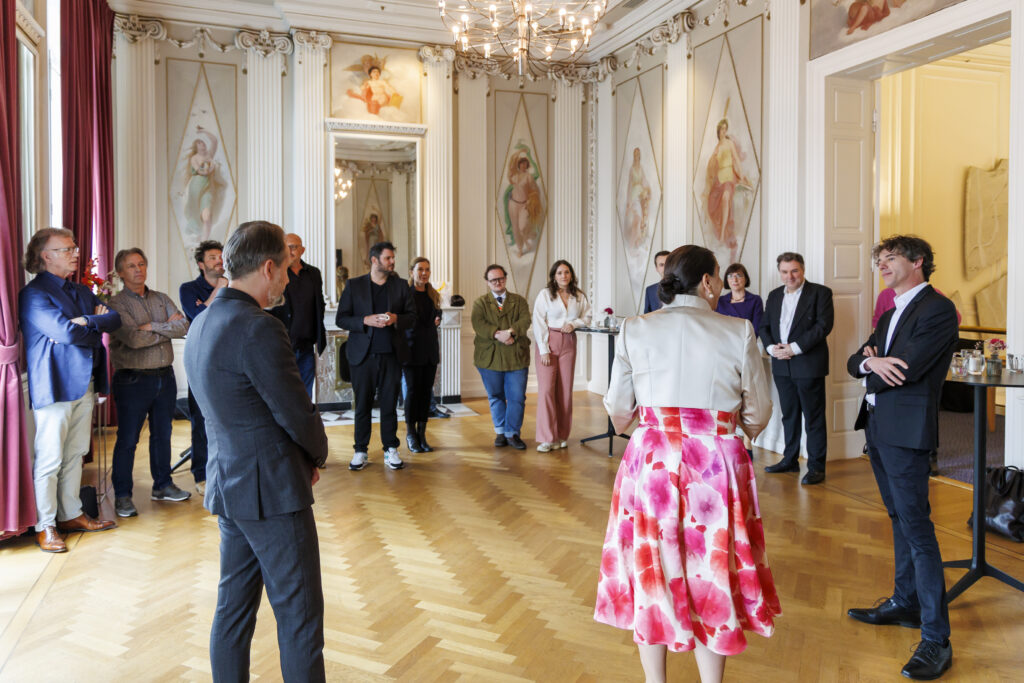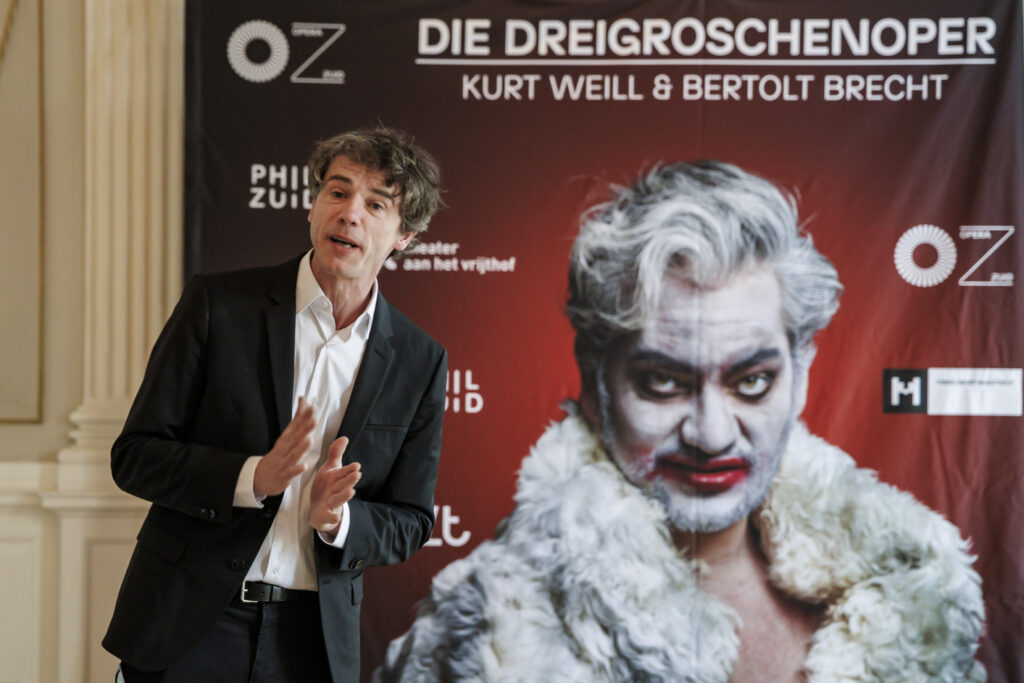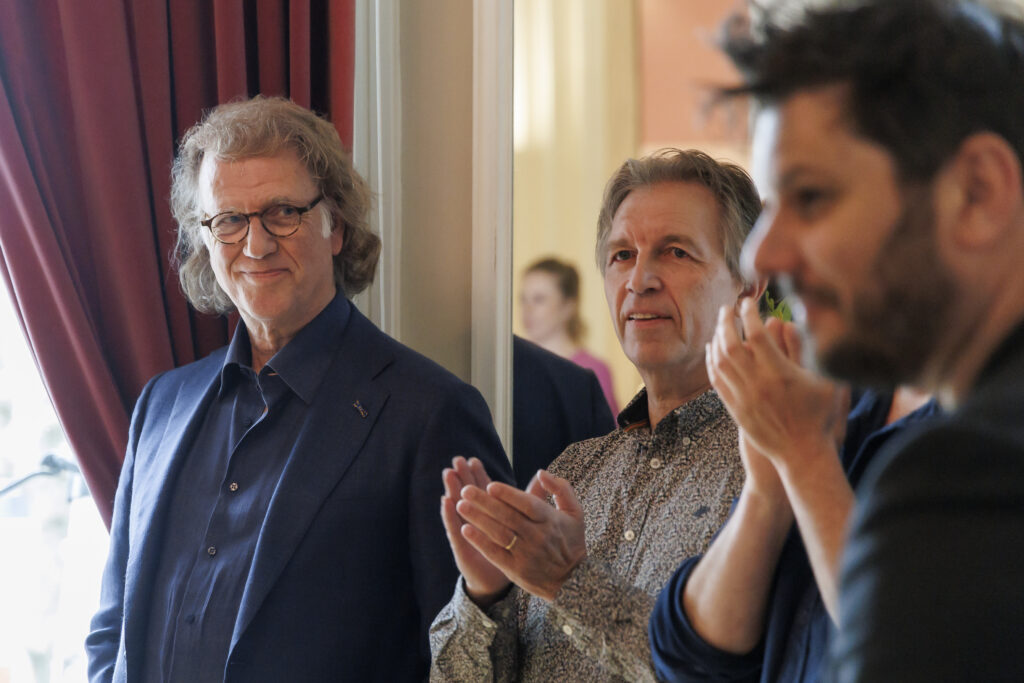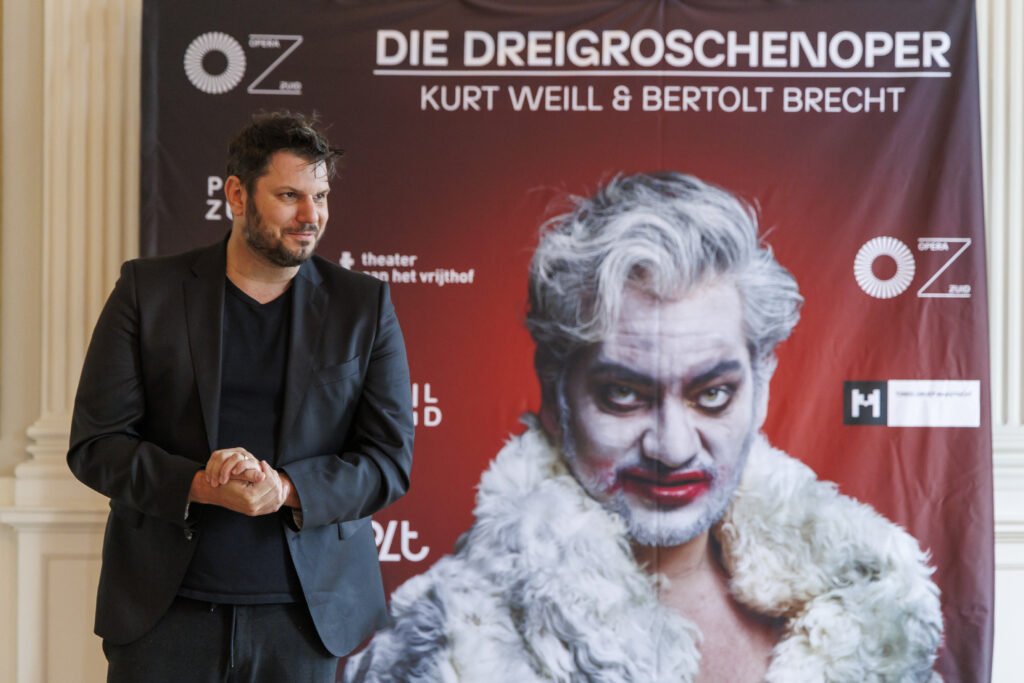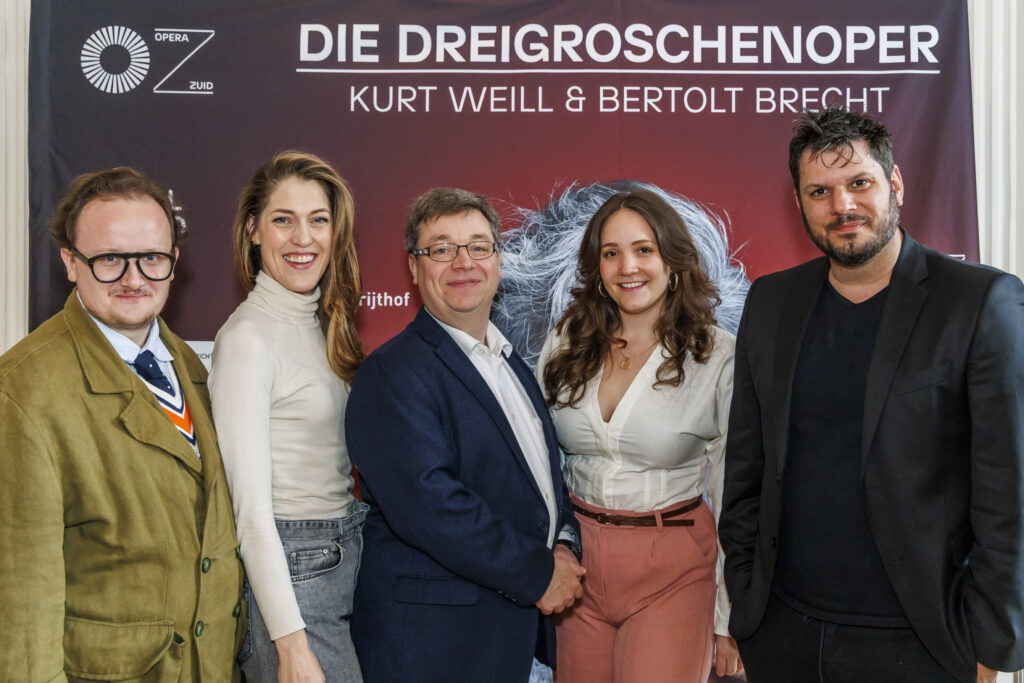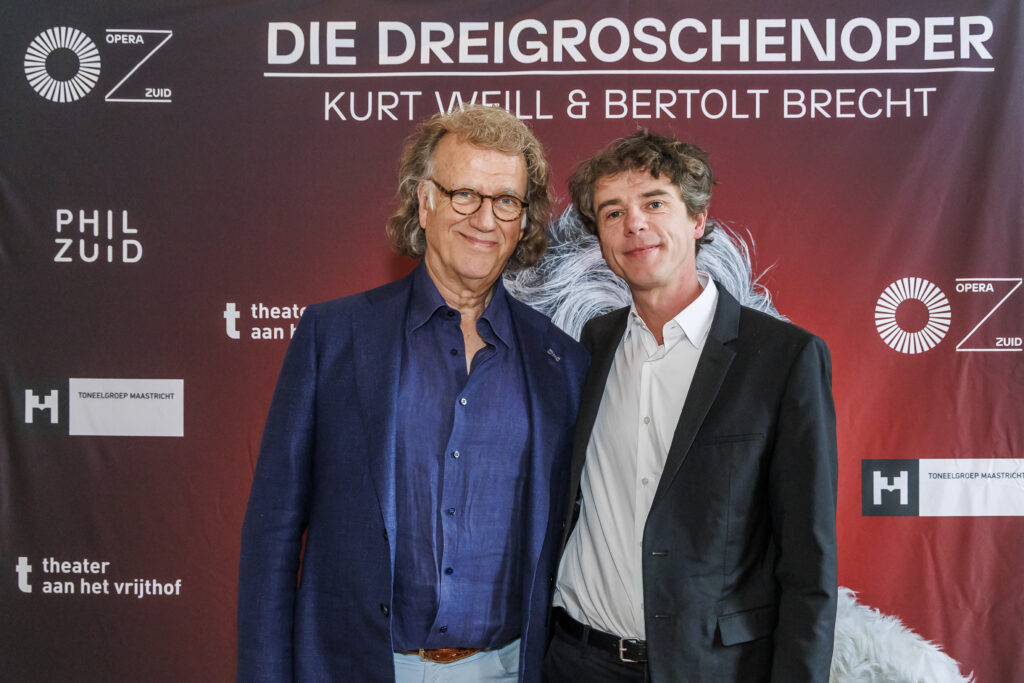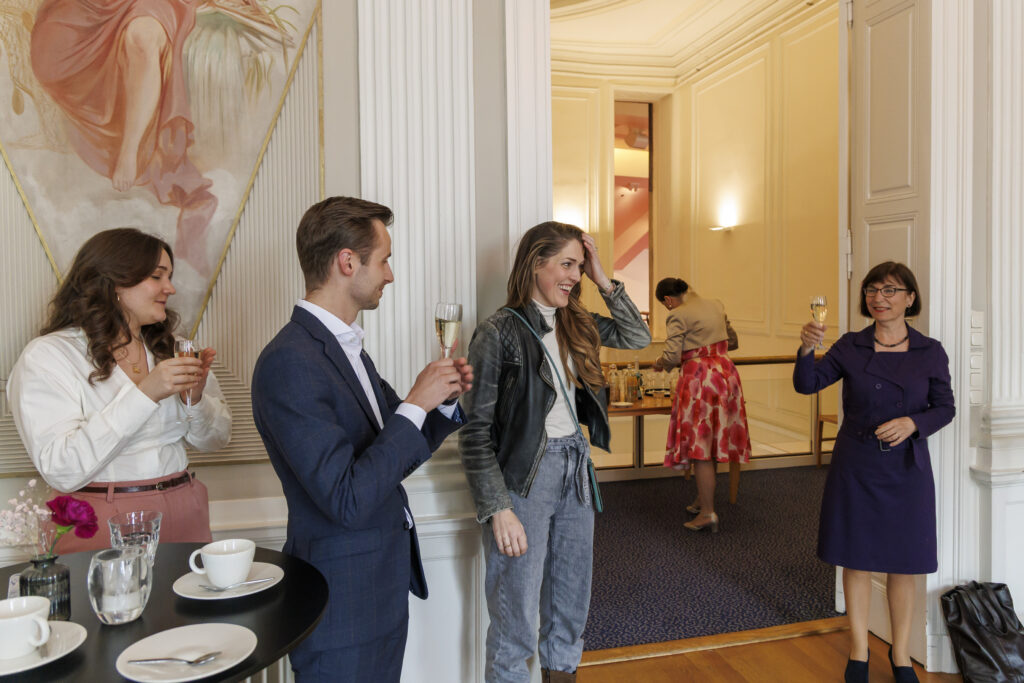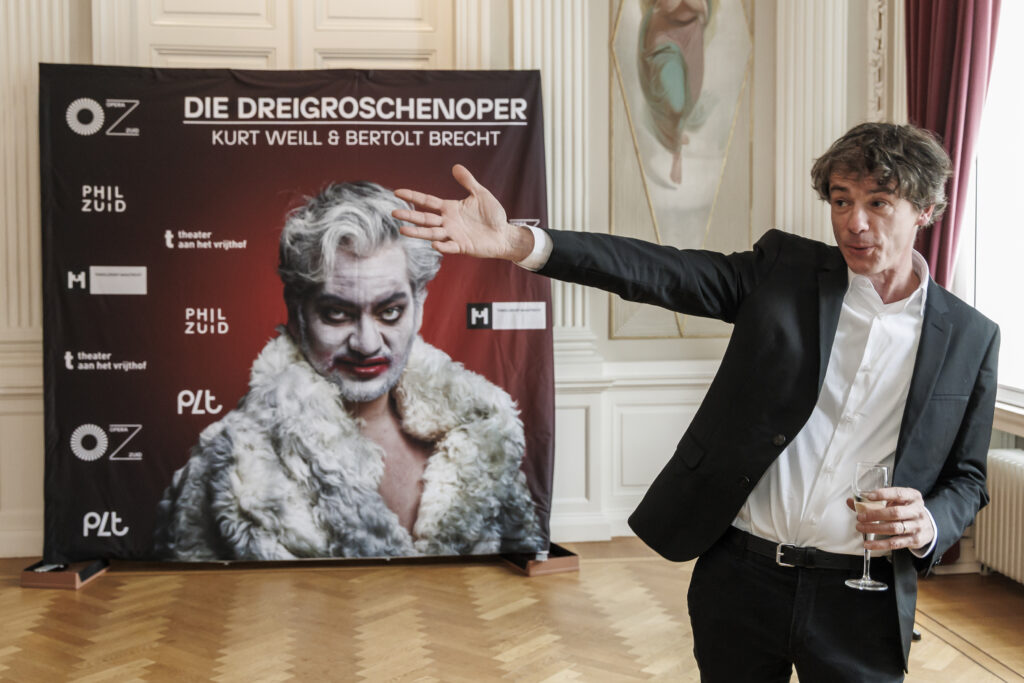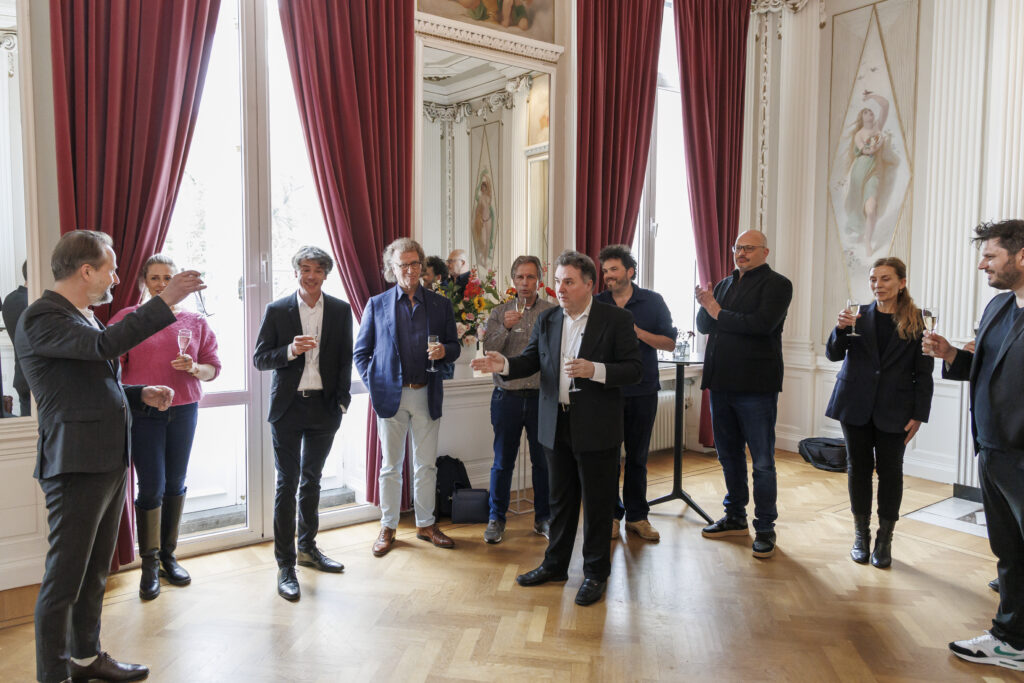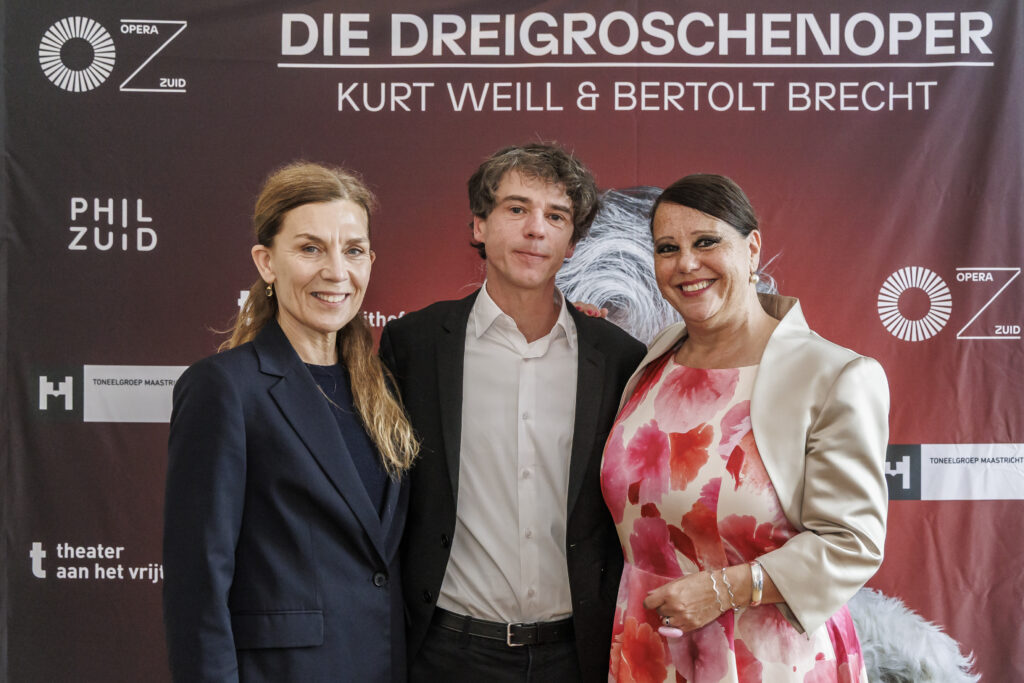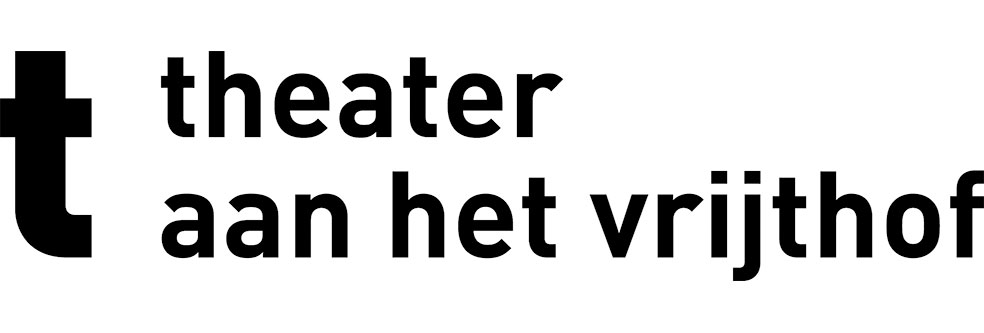Info
EXTRA TICKETS AVAILABLE
Extra tickets have become available at Chassé Theatre Breda. So grab your chance to get a ticket now! Michael Wilmering plays the role of Macheath.
Die Dreigroschenoper is a play with music in a prologue and eight scenes based on The Beggar’s Opera by John Gay, by Bertolt Brecht (text) and Kurt Weill (music) in collaboration with Elisabeth Hauptmann.
Die Dreigroschenoper is titillating entertainment that challenges the audience to look critically at society and morality. Kurt Weill and Bertolt Brecht wrote this satirical play with music, which is full of social criticism, in 1928. Almost a hundred years later, the work is still as sharp and topical.
Die Dreigroschenoper is about the cunning gangster Macheath (Mackie Messer), who marries the daughter of the beggar king, Polly Peachum. Father Peachum tries to get Macheath sentenced to death in order to maintain his power. Betrayal, corruption and bribery show how this (under)world works. The opera begins with the world-famous Die Moritat von Mackie Messer and ends with a cynical deus ex machina, or an unexpected denouement.
Kurt Weill’s iconic music explores the boundaries of musical theatre. In Die Dreigroschenoper, classical, cabaret, jazz and chanson merge into a timeless and unique experience. ‘Weill composes in an indefinable musical style; it can rightly be called a connecting work of art’, says the Limburg and internationally renowned conductor Enrico Delamboye about this.
Die Dreigroschenoper stimulates and confronts in a dynamic, highly artistic way. ‘The music sounds – in a positive sense – unpolished, a bit raw and sometimes almost attacking. The connection between text and music also has a very strong theatrical effect. Like in the famous Mackie Messer: the sounds seduce, while the textual content sobers. That, and all those different styles require a very high degree of artistry, from all of us.’ according to Delamboye.
Opera Zuid has chosen theatre man Servé Hermans to direct Die Dreigroschenoper. As artistic director of Toneelgroep Maastricht, he created and directed numerous successful theatre pieces. He also directed the spectacular musicals Dagboek van een herdershond and Het was Zondag in het Zuiden. With Die Dreigroschenoper, he makes his debut as an opera director. ‘I find it interesting that it is such a social and topical piece. In Die Dreigroschenoper, the power lies with a few people, in a society in which the vast majority is needy. Compare that to the times in which we live.’ According to Servé Hermans, the opera shows ‘a unique, autonomous world – recognisable, but not an environment in which the theatre audience moves every day.’ The absurd, ironic situations hold up a mirror to us. How does Mackie’s world relate to our own society? And who are we actually laughing at?
Die Dreigroschenoper is a play with music in one prologue and eight scenes based on The Beggar’s Opera by John Gay, by Bertolt Brecht (text) and Kurt Weill (music) in collaboration with Elisabeth Hauptmann.
Die Dreigroschenoper lasts approximately two and a half hours including intermission and is sung in German, with Dutch dialogues and Dutch and English surtitles.
IN CONVERSATION WITH DIRECTOR SERVÉ HERMANS AND MUSICAL MANAGER ENRICO DELAMBOYE
Servé, directing opera was a long-cherished dream of yours. Why did you choose Die Dreigroschenoper?
Servé: ‘I find it interesting because it is such a social piece. But the work also touches very much on the present day. In Die Dreigroschenoper, the power lies with a few people, in a society in which the vast majority is needy. Compare that to the era in which we live. I find it interesting to perform this piece, although I do not want to colour anything in for the audience. People are allowed to make their own connections.’
Enrico: ‘That is why our Dreigroschen is detached from time and place.’
Servé: ‘Exactly, we are letting go of the original Victorian London and creating our own world that does not fit into a frame of reference that you and I know. We will recognise it, but it is not the world in which the audience in the theatre naturally moves.’
Bertolt Brecht created epic theatre with Die Dreigroschenoper, according to himself. What does that mean?
Servé: ‘Epic theatre is a narrative theatre style that encourages the audience to experience the performance more with their head than with their heart. An important part of this is the Verfremdungseffekt, the alienation effect. These are techniques that actors and directors use to make it clear to the audience that they are watching theatre. The spectator is therefore challenged to think and to mirror the events to their own situation. In addition, Die Dreigroschenoper is a theatre piece that shows two sides of the same coin; the theatre and the commentary on theatre, a society and the commentary on that society. The piece is in no way intended to be emotionally involved, although there is a lot of humour in it. It uses sarcasm, irony, absurdism, self-mockery, a desire to play, a desire to make theatre. It is a sensually stimulating performance that is sharp in its content and should shake people awake.’
How do we hear this irony and sharp content in Kurt Weill’s music?
Enrico: ‘First of all in the striking orchestration; you don’t hear romantic violins but instruments that are not standard in a classical orchestra, such as a folk guitar, a banjo and saxophones supplemented with grinding trombones next to the ‘normal’ cello and double bass. In addition, Weill writes many punctuated rhythms. The music sounds – in a positive sense – unpolished, a bit raw and sometimes almost attacking. Weill composed in an elusive musical style; he used influences from jazz, chansons, classical music, cabaret and ballads. It can rightly be called a connecting work of art, because he forges one whole from all those different styles.’
Servé: ‘At the same time, Weill’s often warm, round melodies contrast with Brecht’s rather gruesome lyrics about murder and manslaughter. Because of this, there is always a discrepancy between what the music does to you and what is said in terms of textual content. Nothing is what it seems. You remain on the edge of your seat to discover; what does this piece want, what does this music want to tell me?’
Enrico: ‘The connection between text and music has a very strong theatrical effect. That, and all those different styles require a very high degree of artistry, from all of us.’
Who is this performance suitable for?
Enrico: ‘For anyone with an open mind who does not shy away from the arts!’
Servé: ‘For anyone who is prepared to get on that train. Look, if you remain standing on the platform with a sour face, then it will be difficult… but if you let yourself be carried away, then with Die Dreigroschenoper you will have a lustful, sensible, meaningful, witty, ironic, inspiring, tasty evening.’

